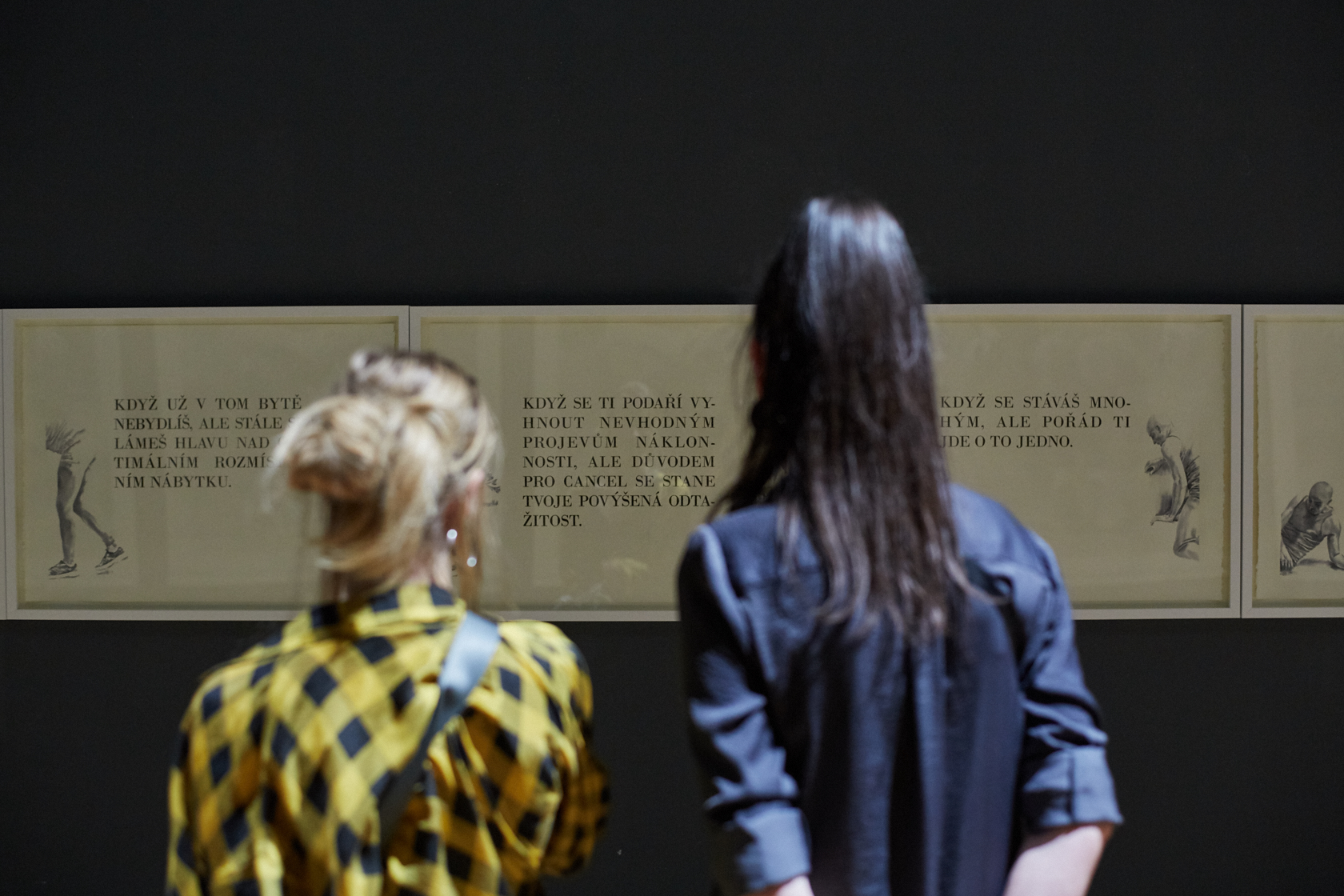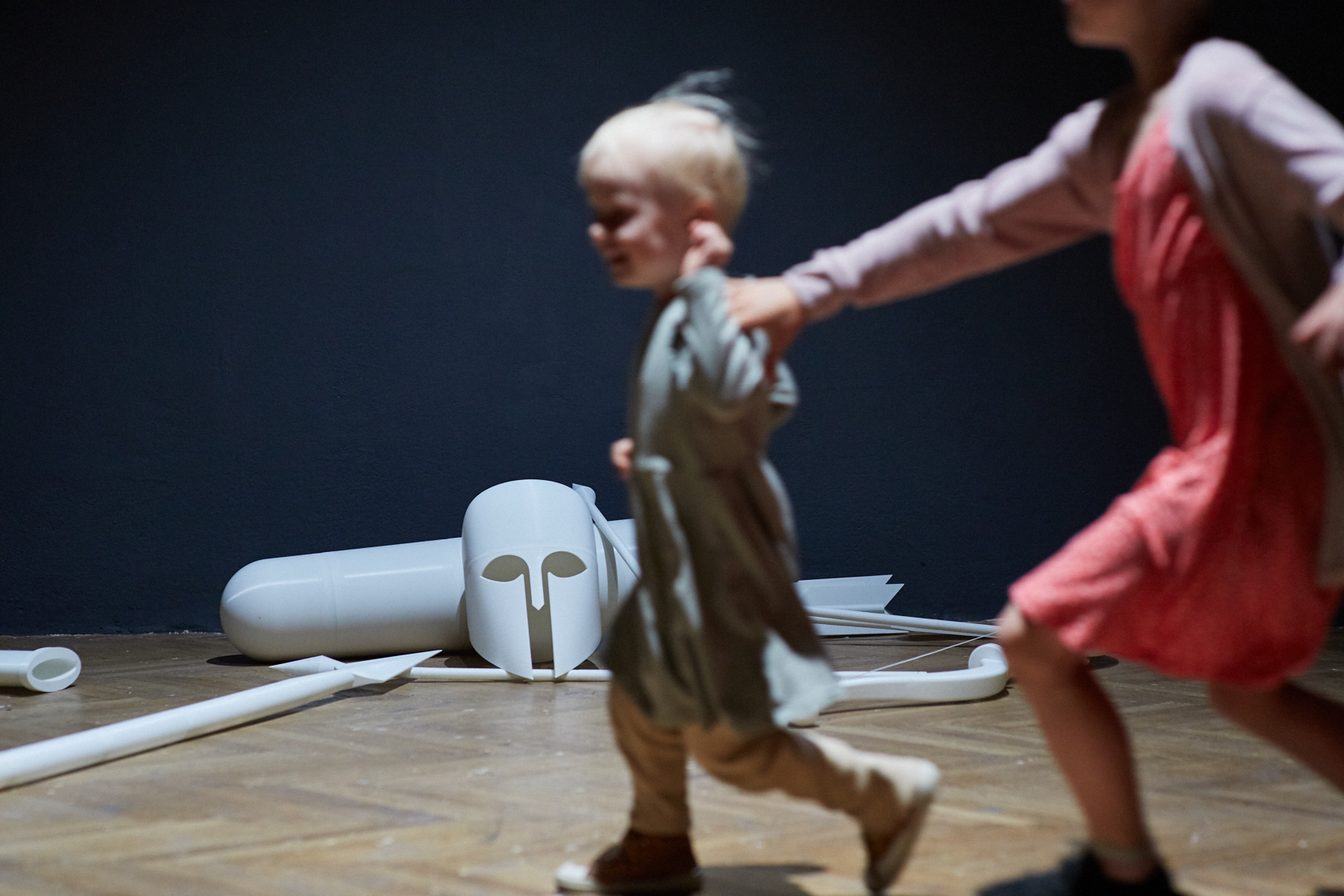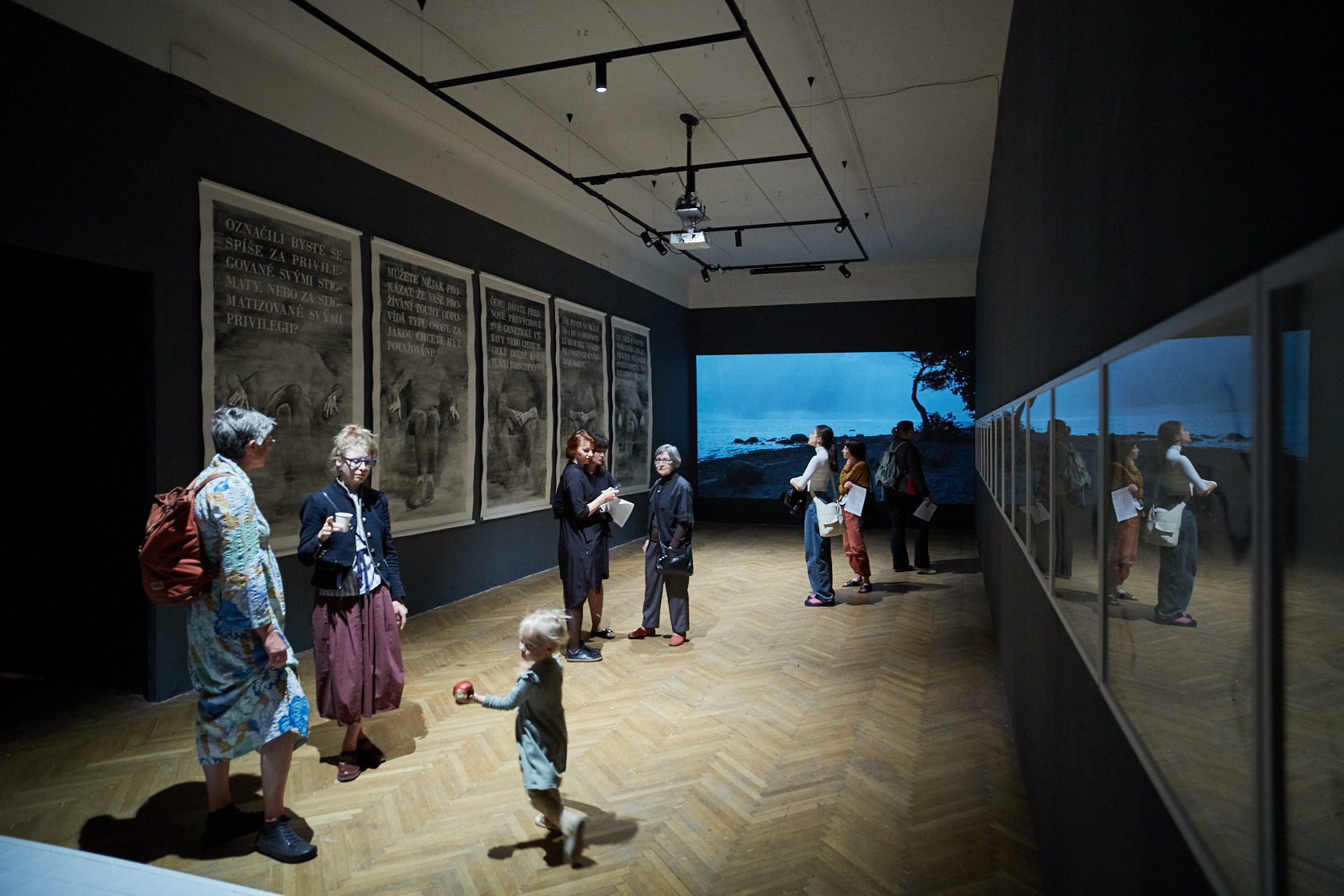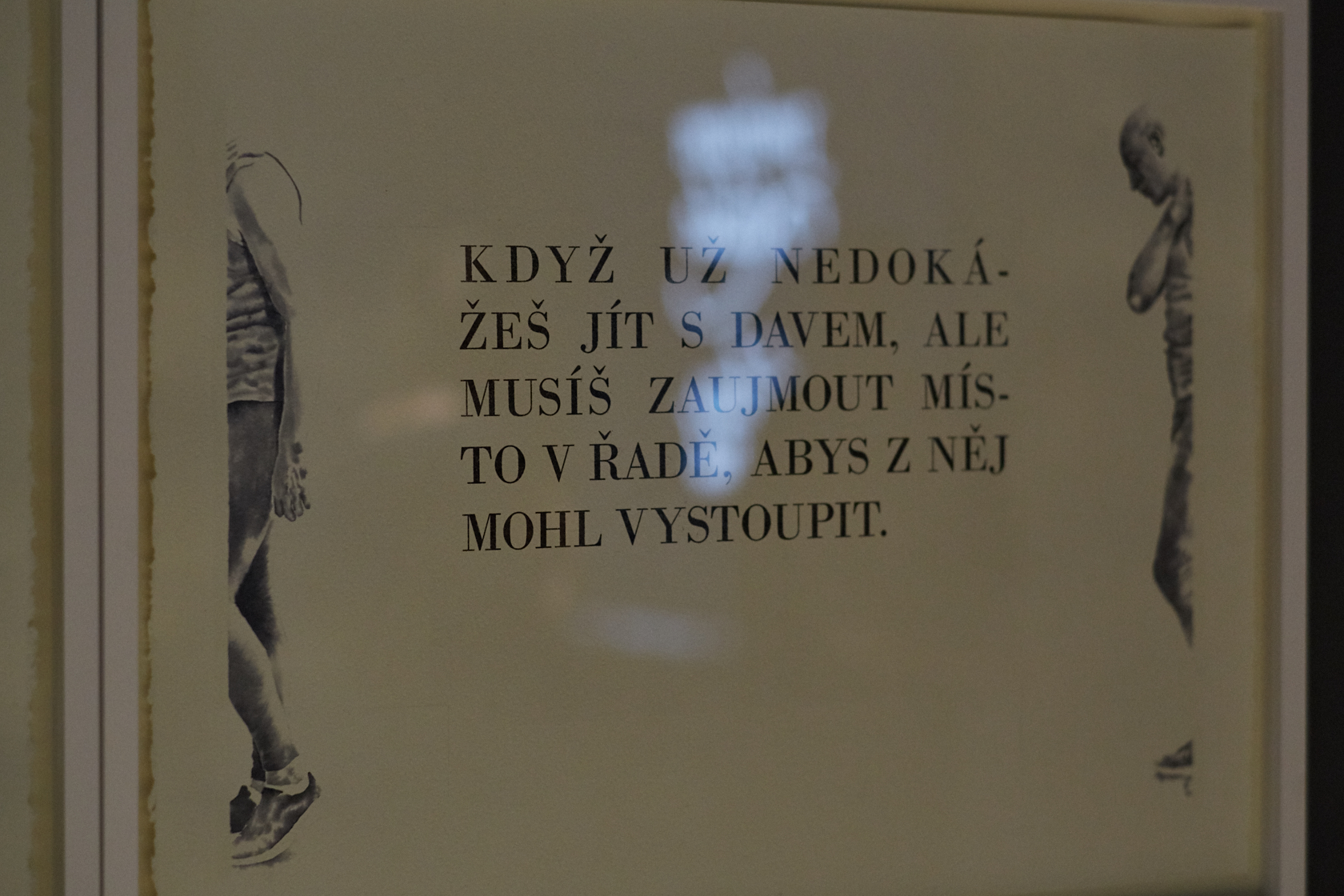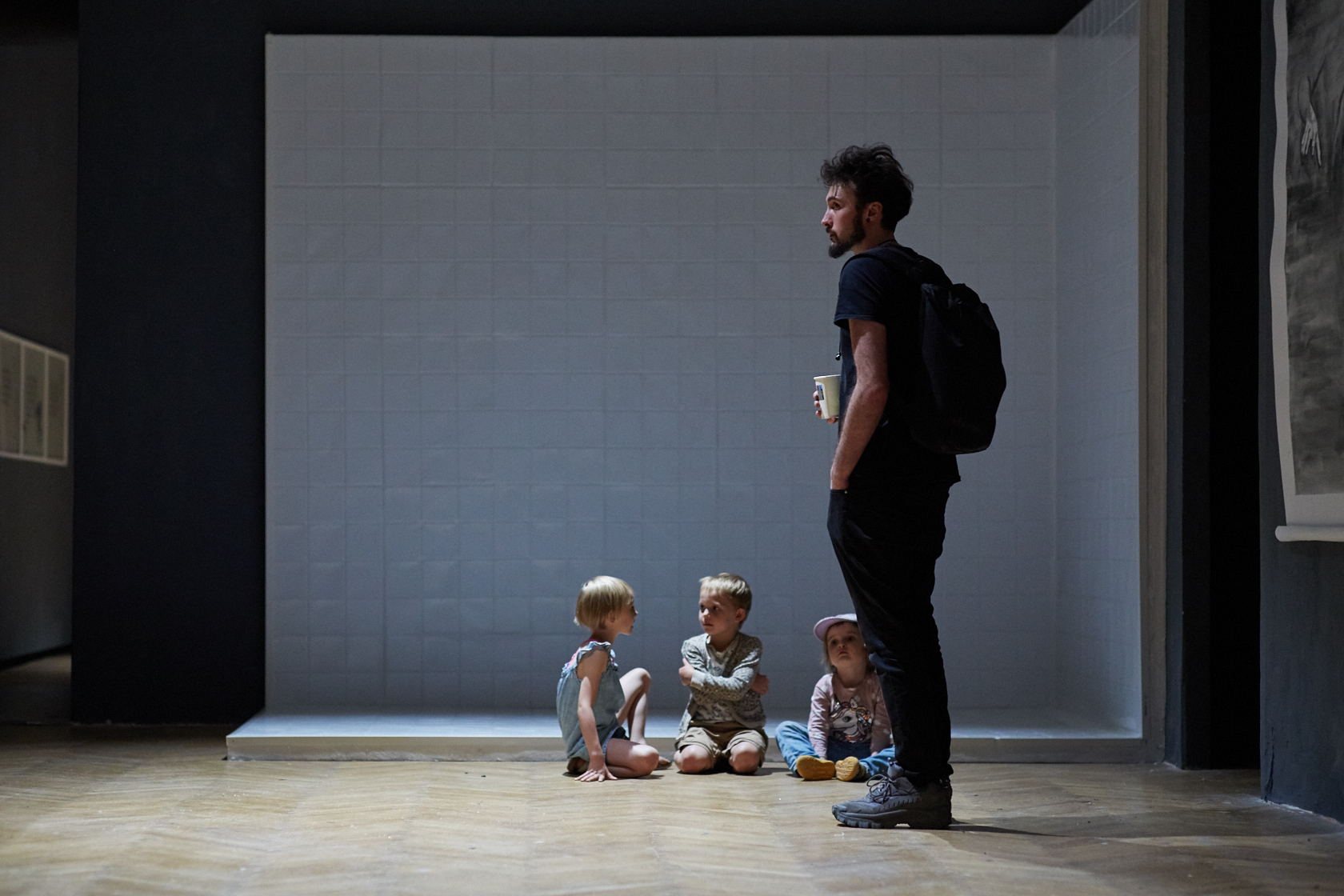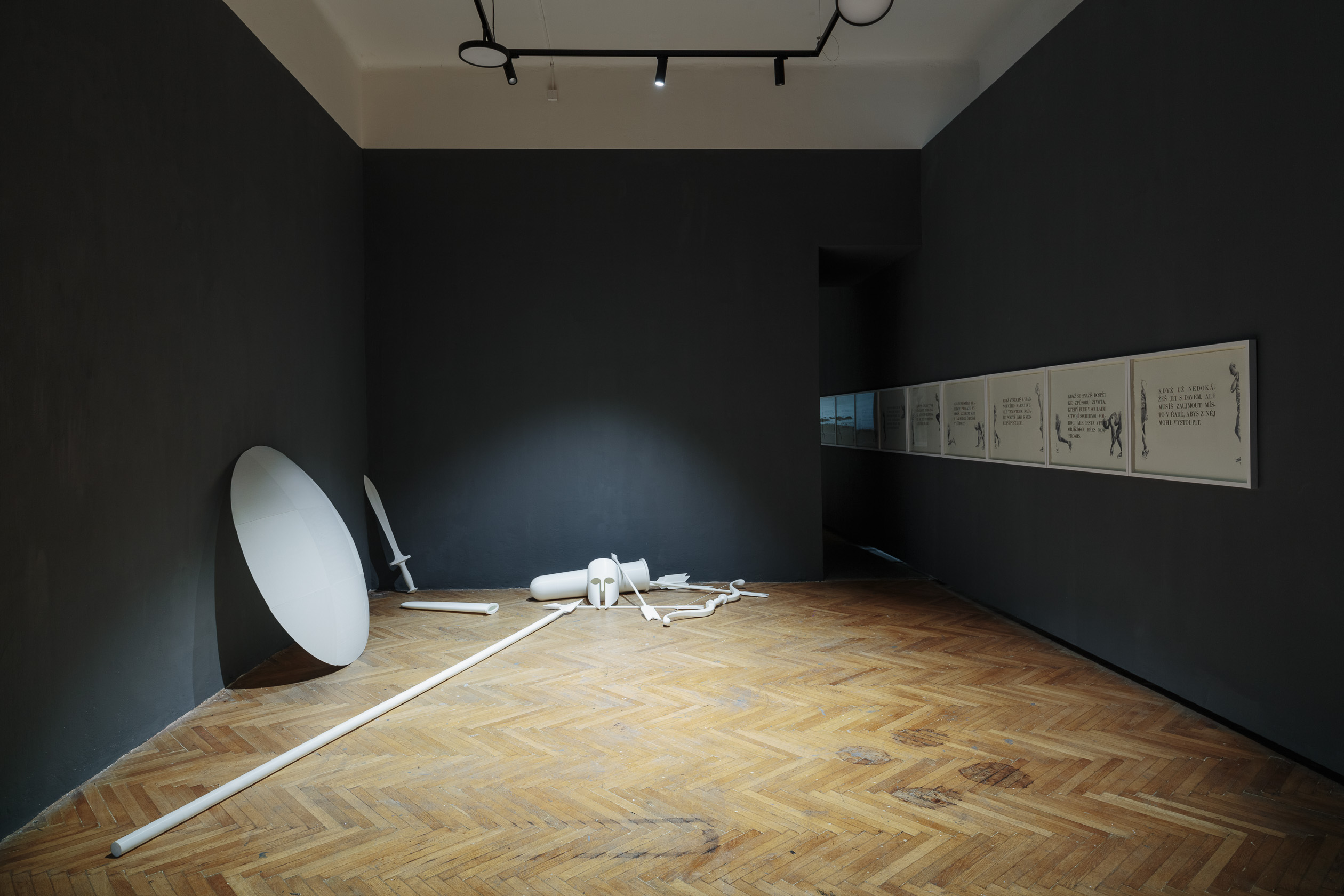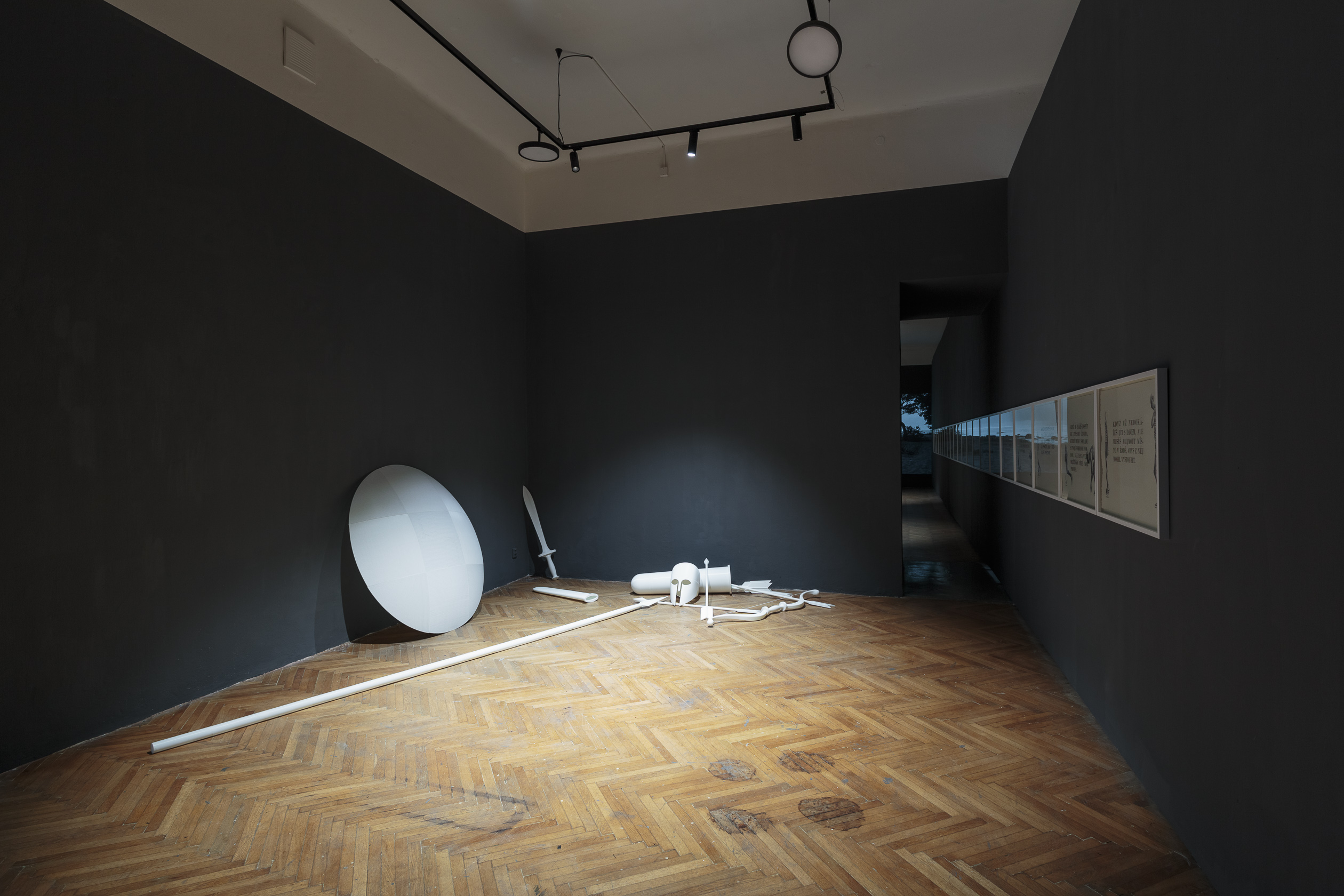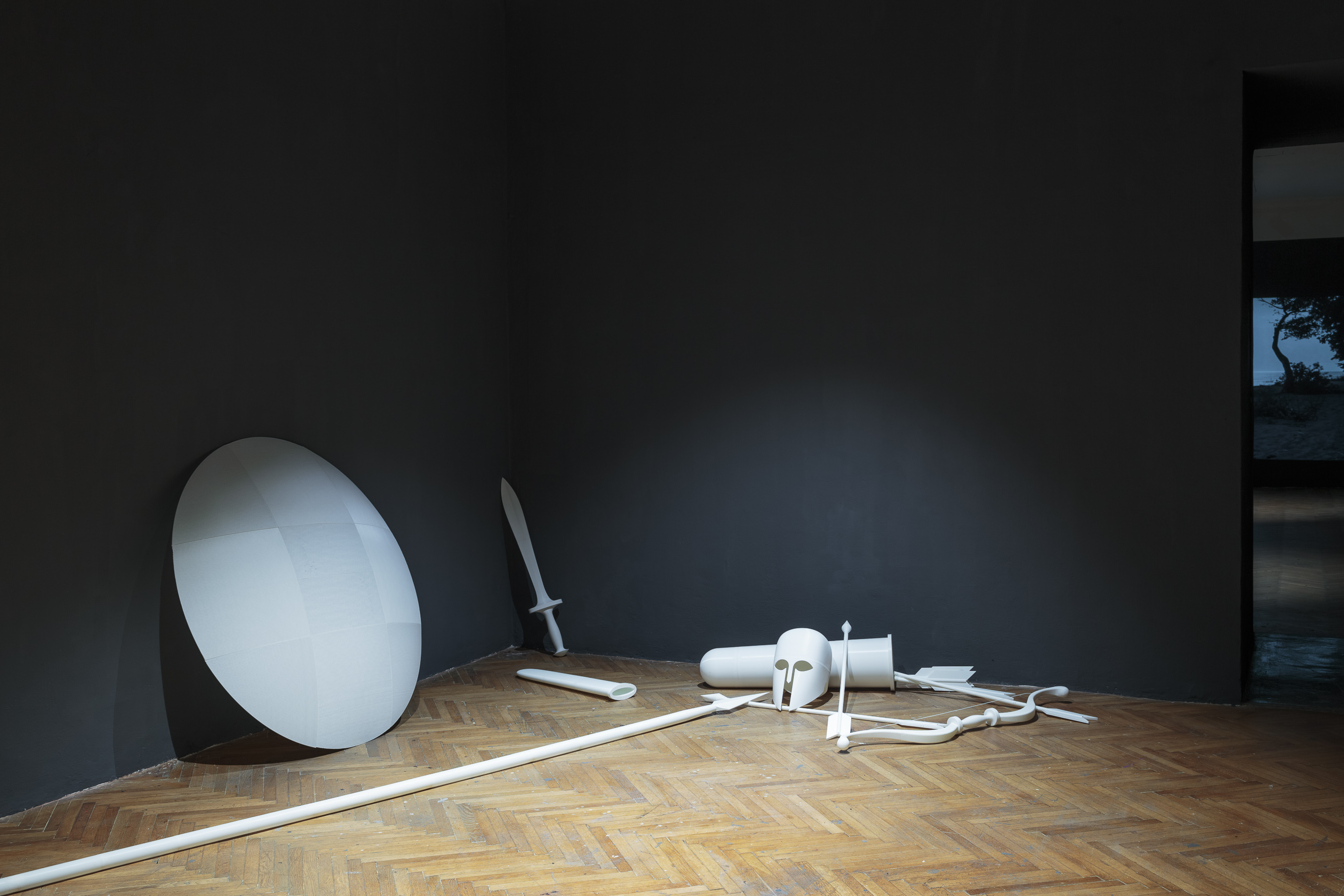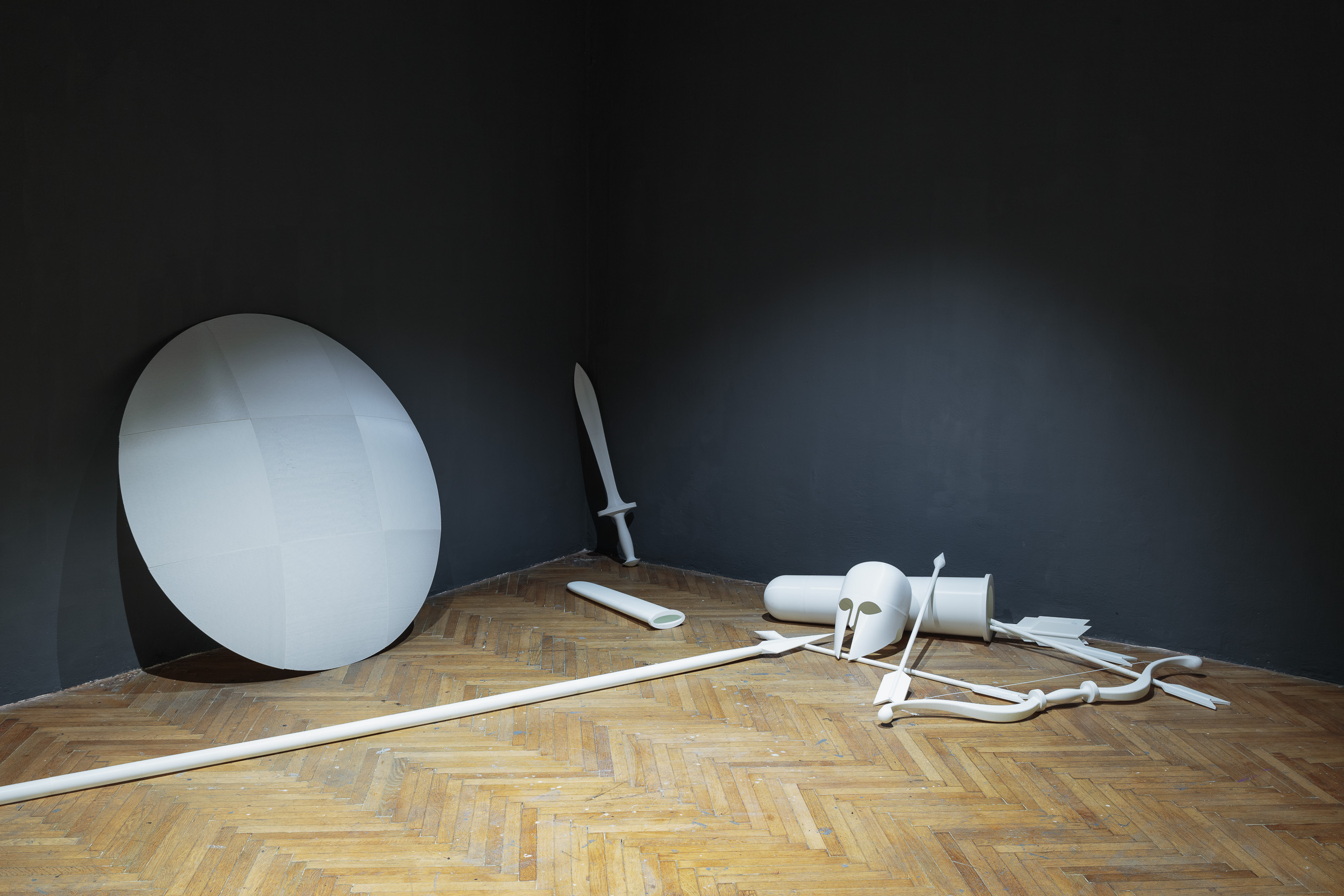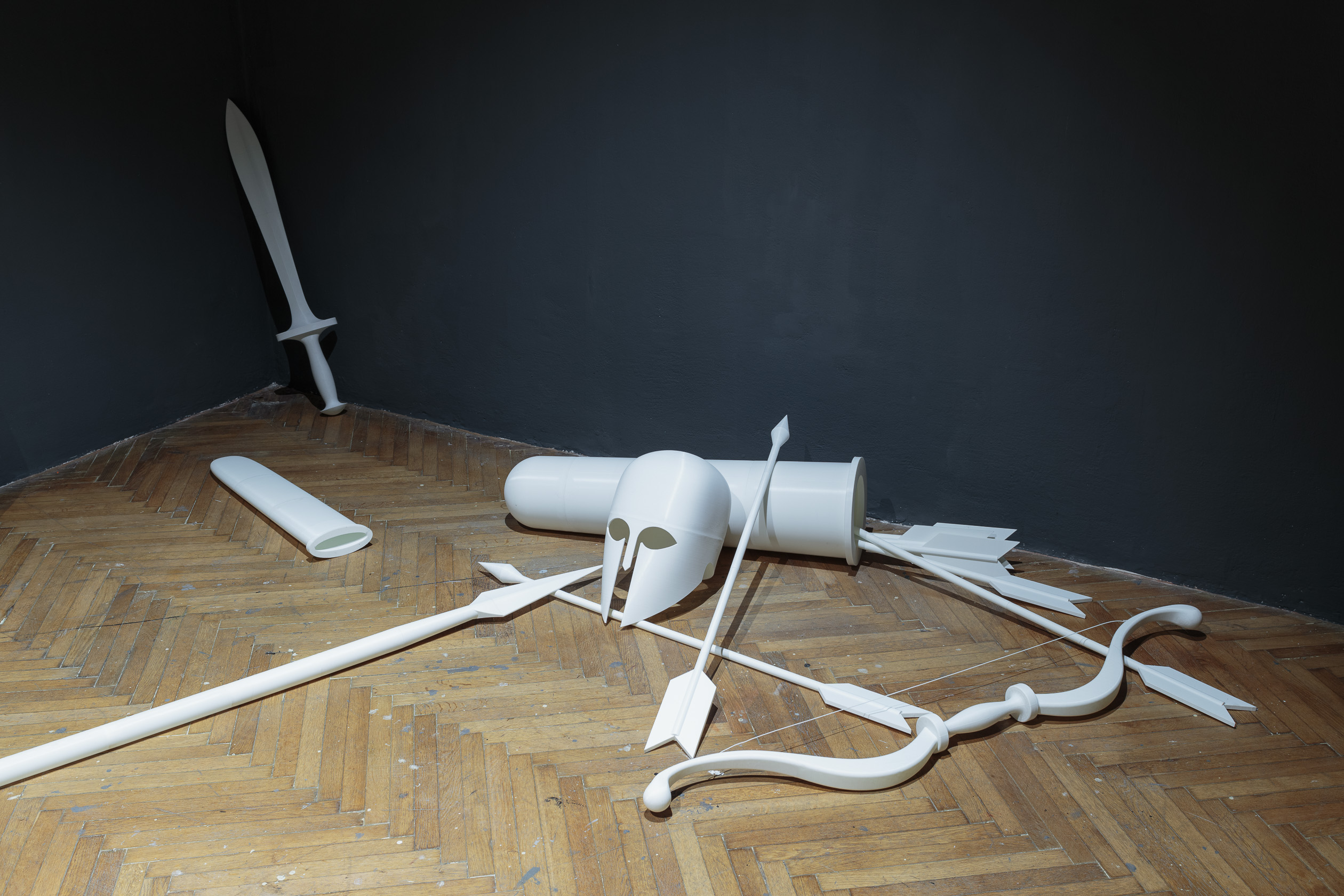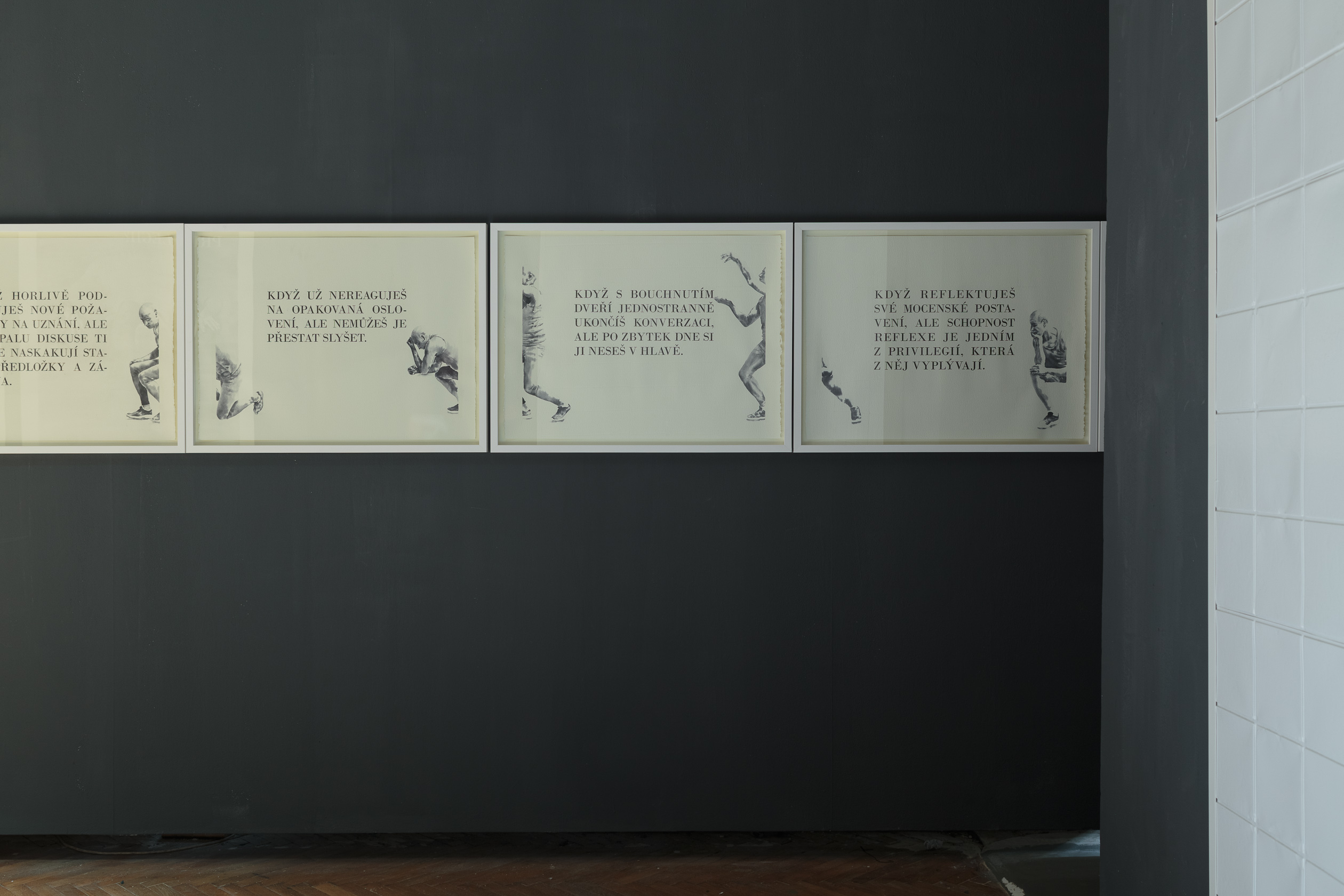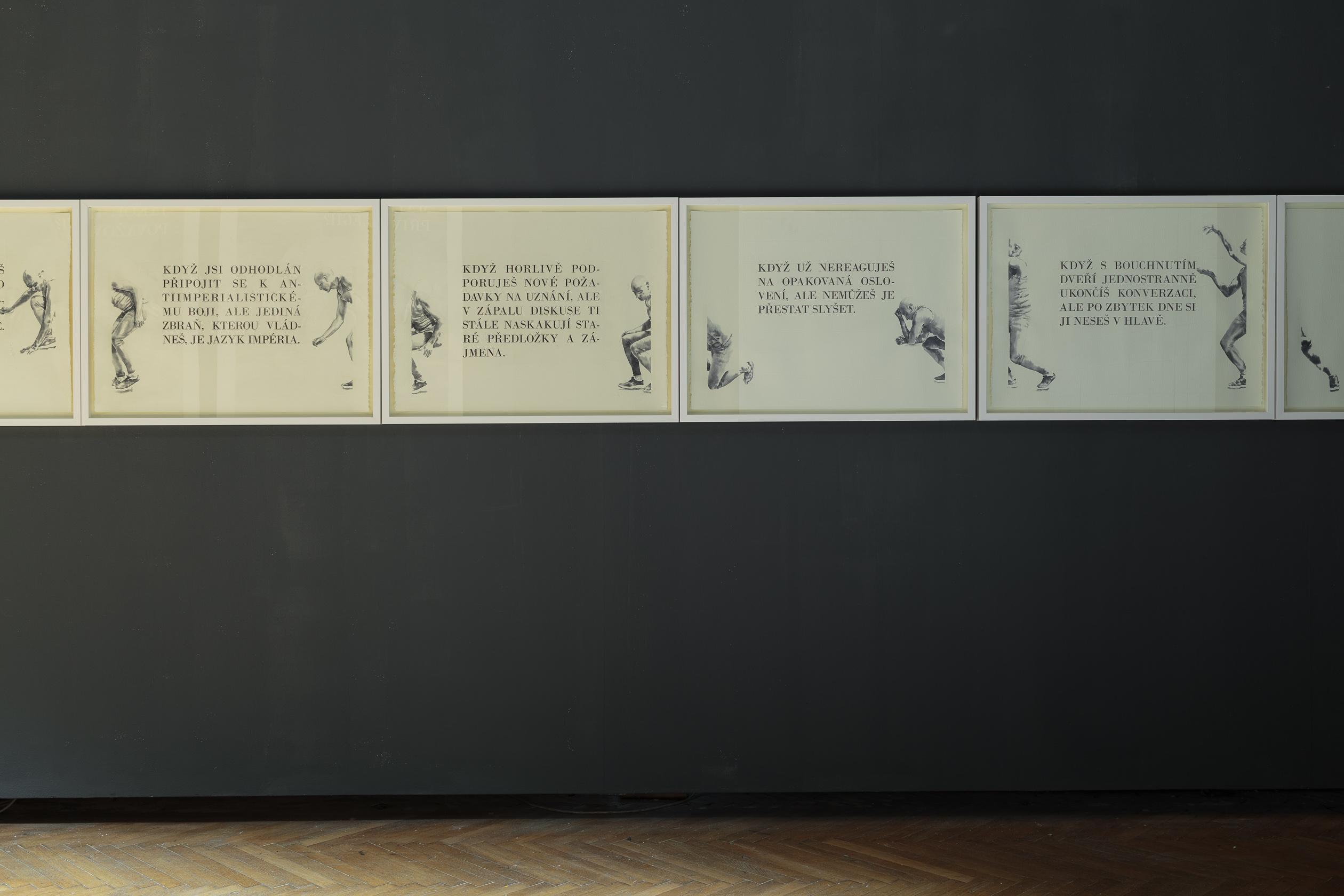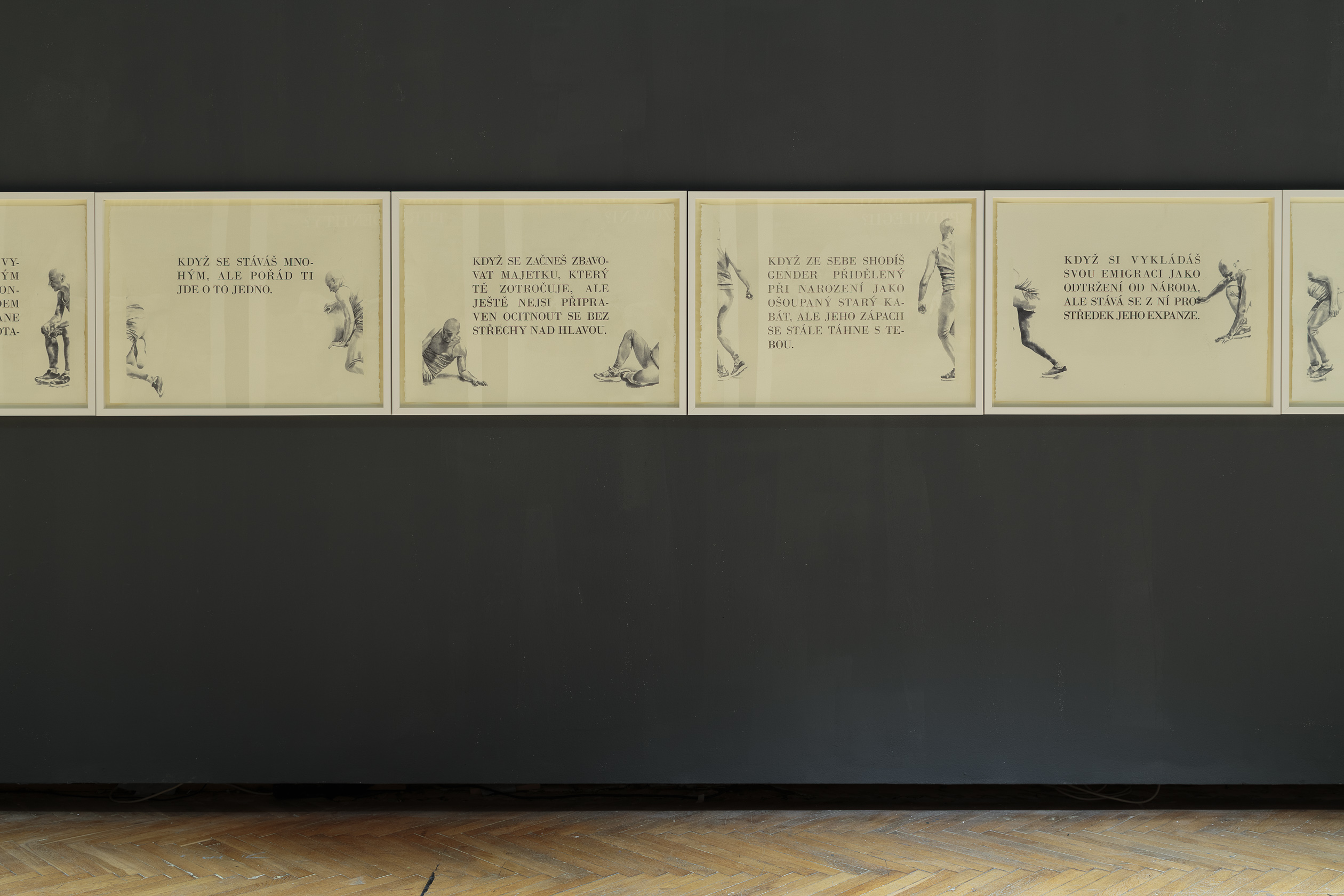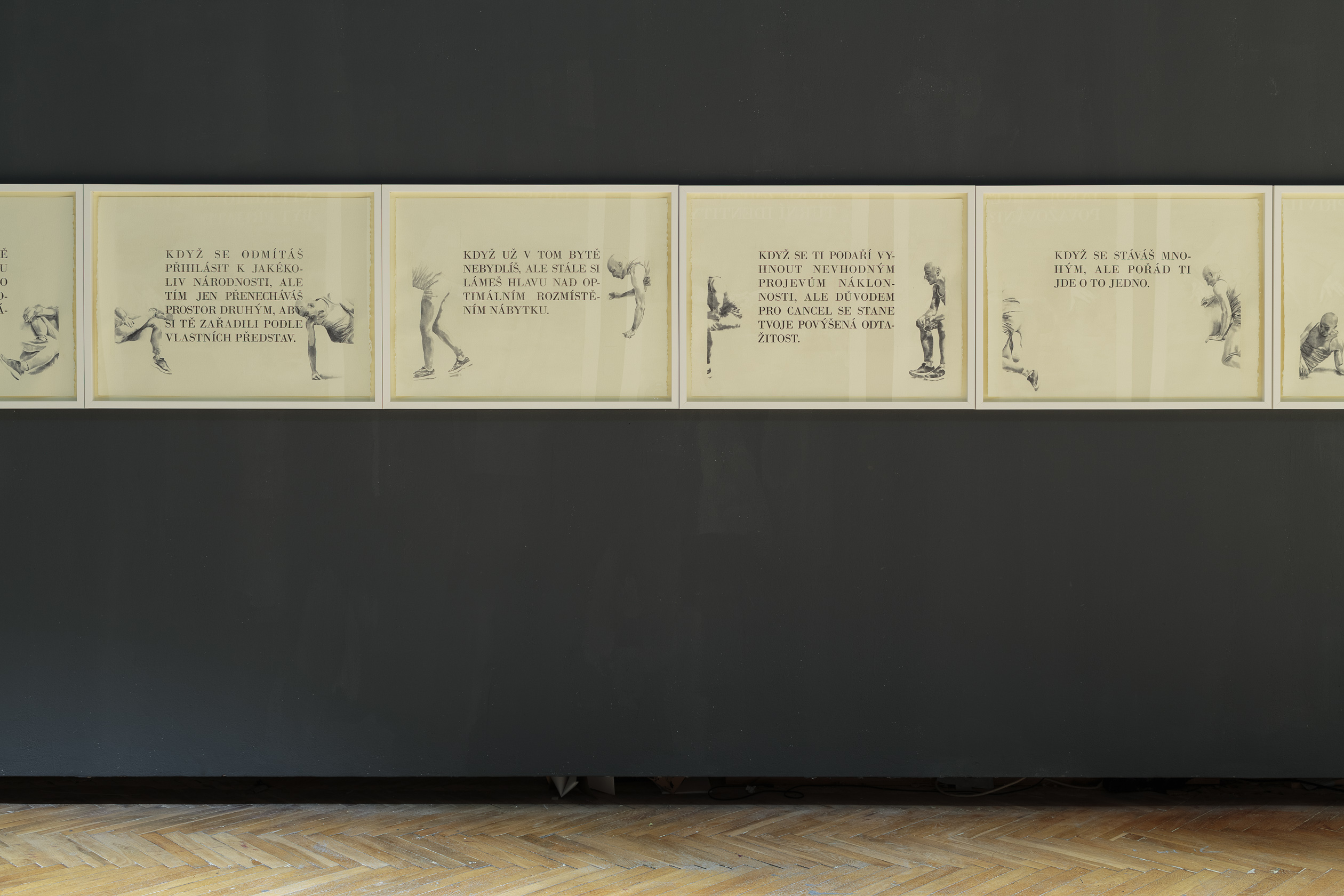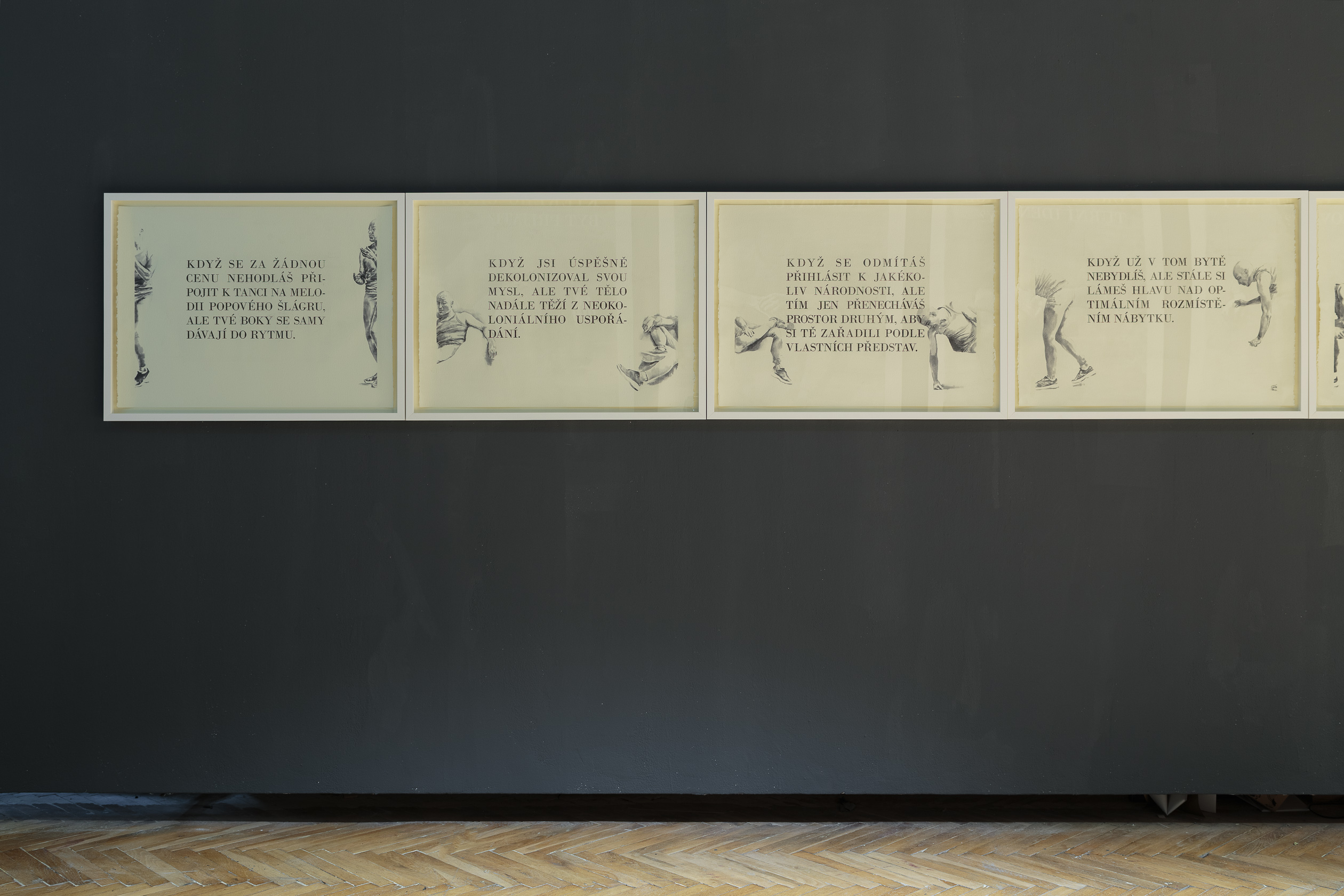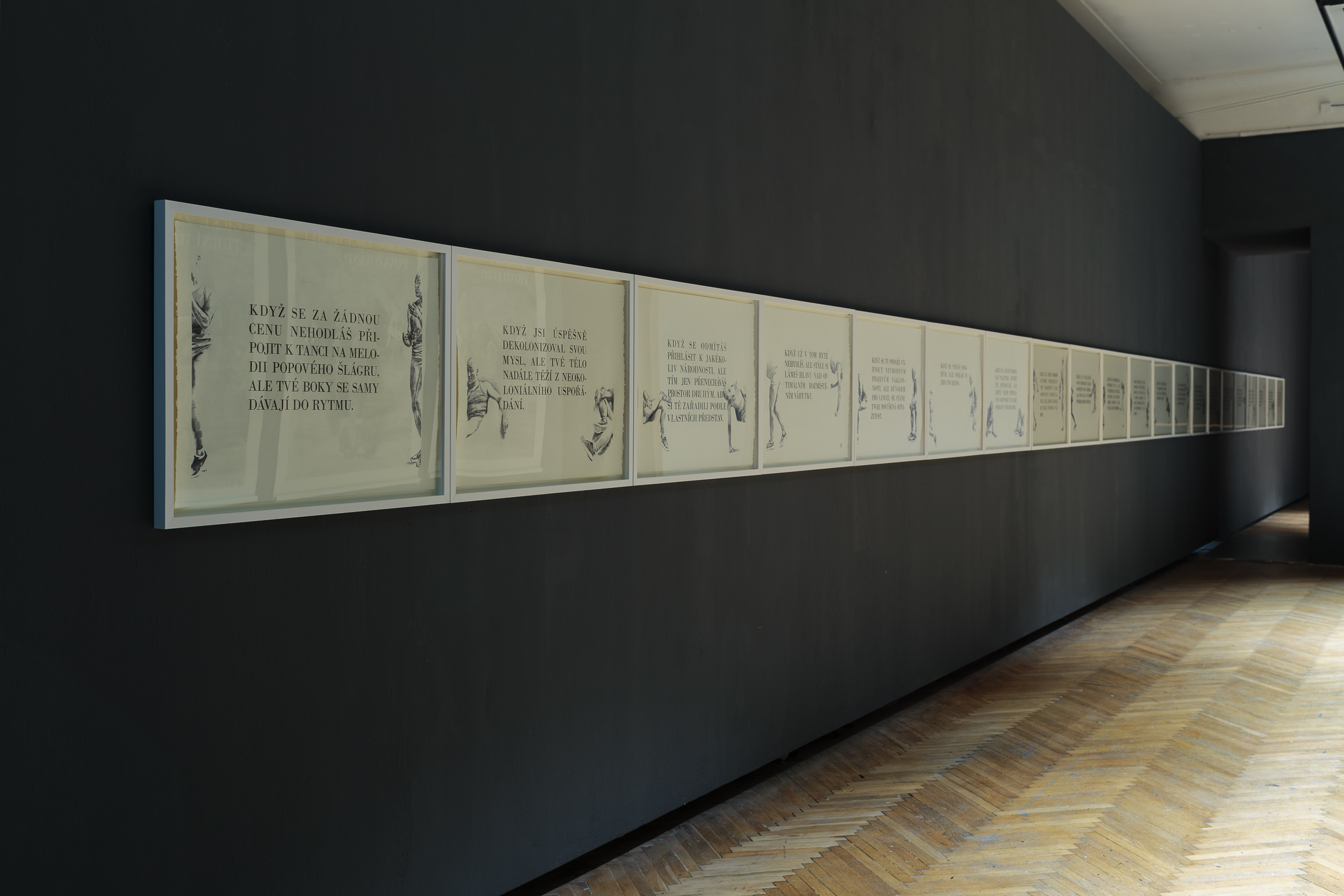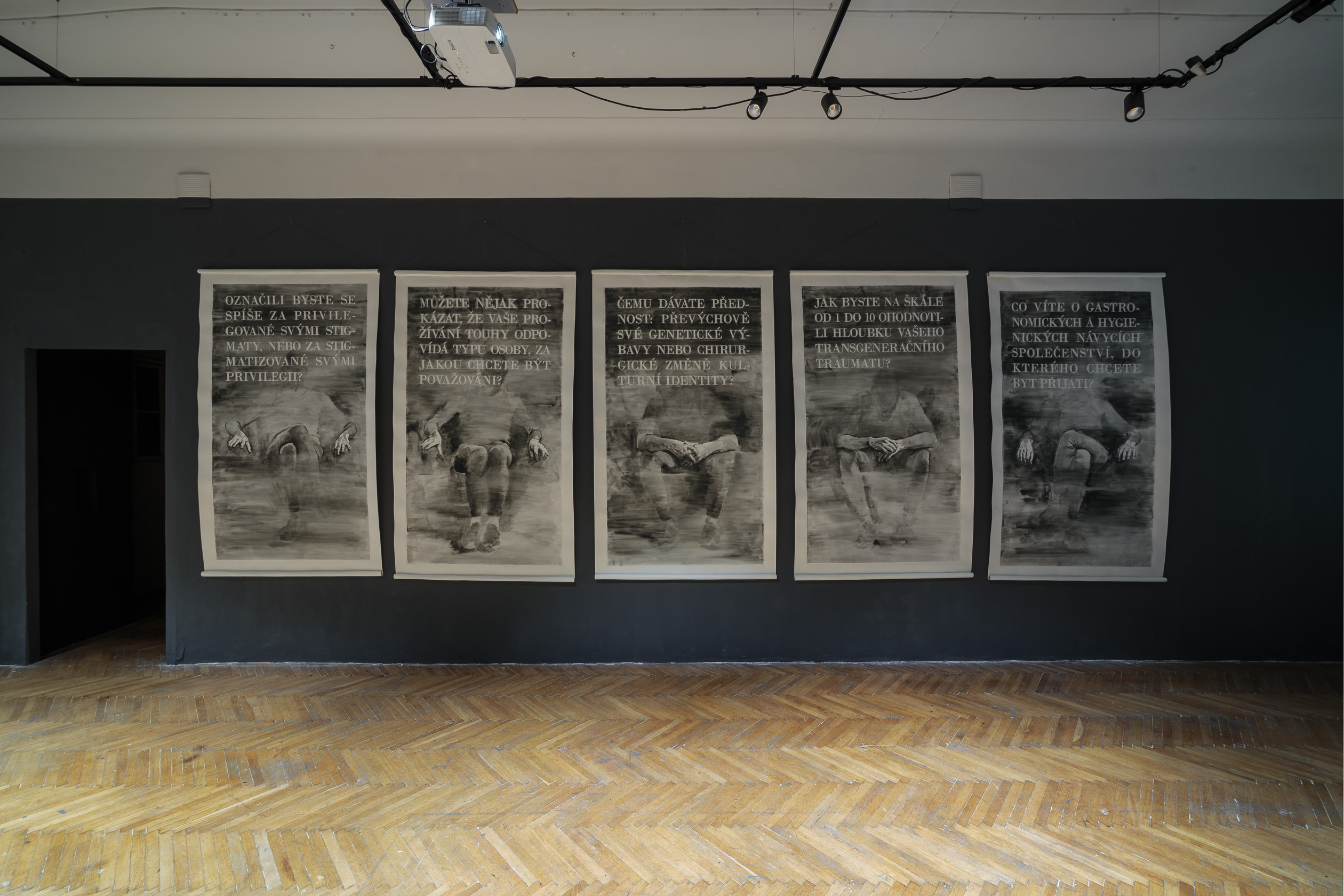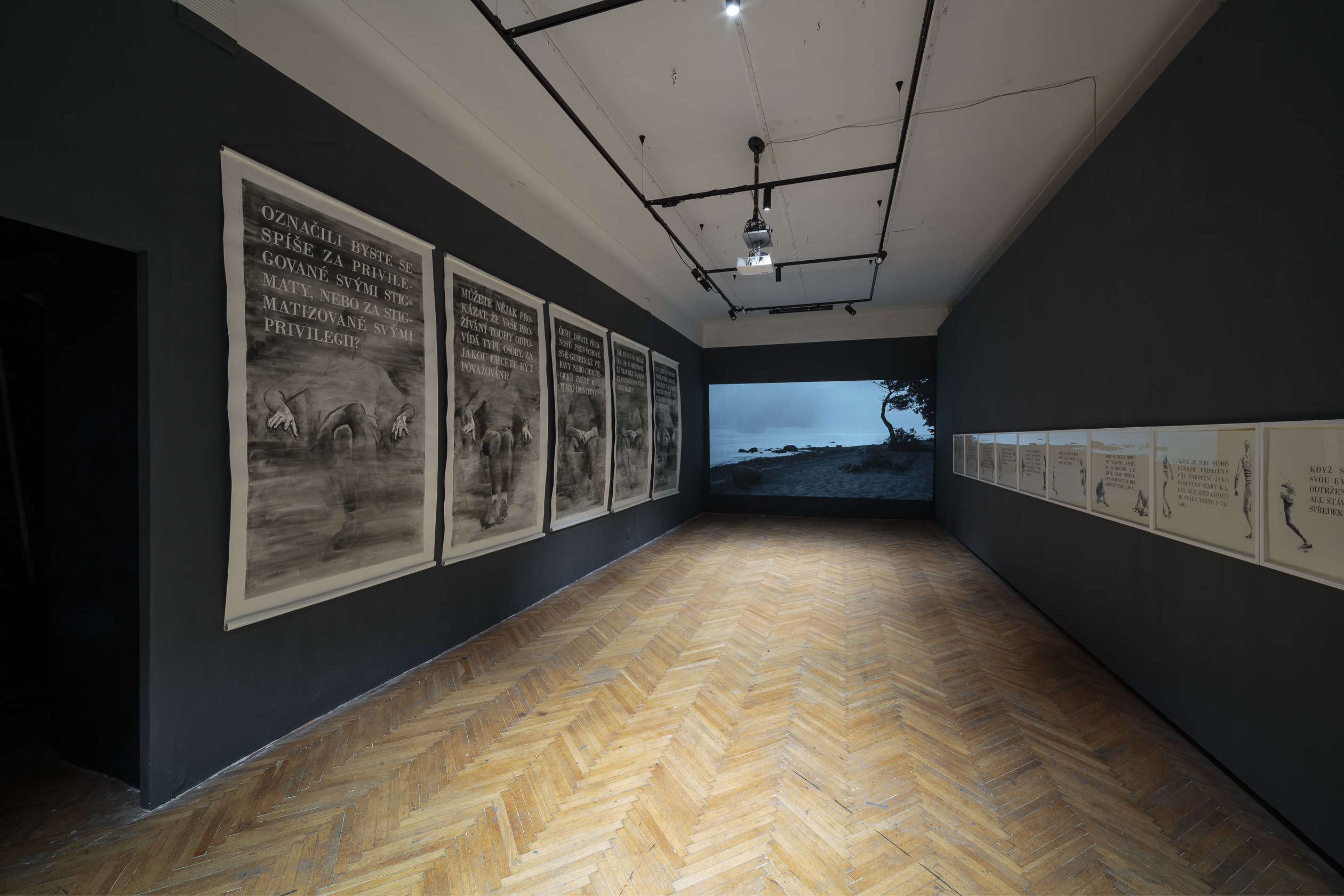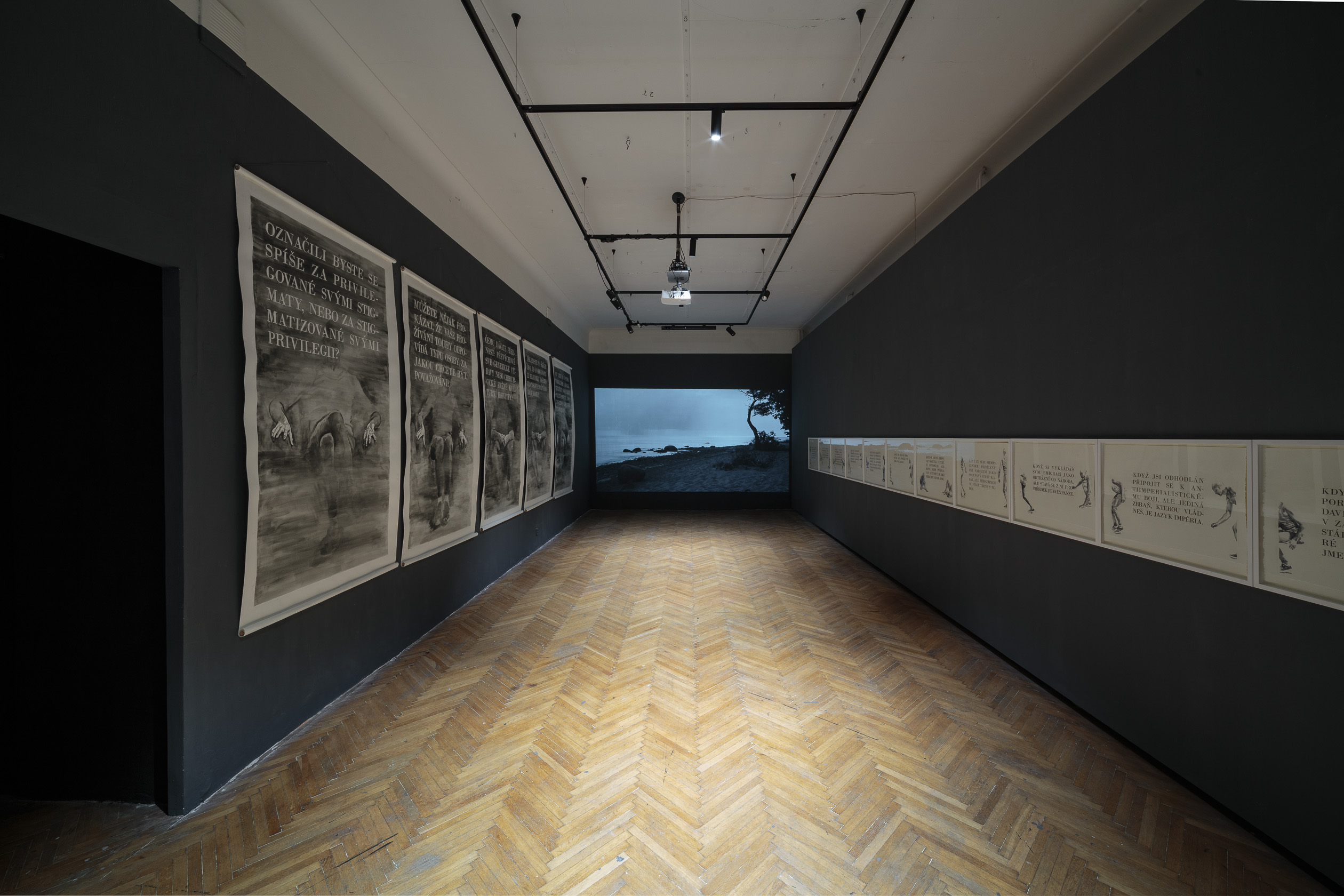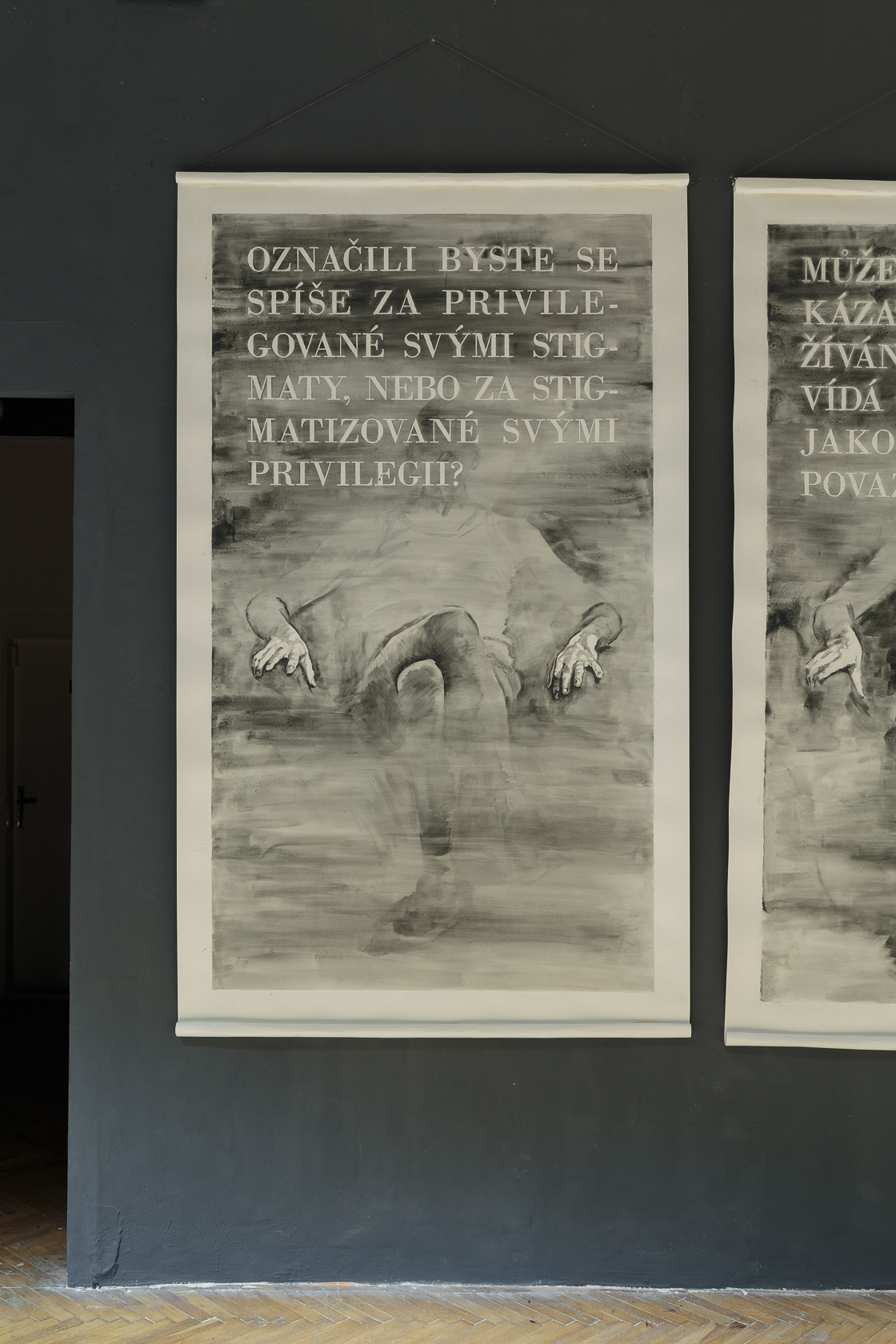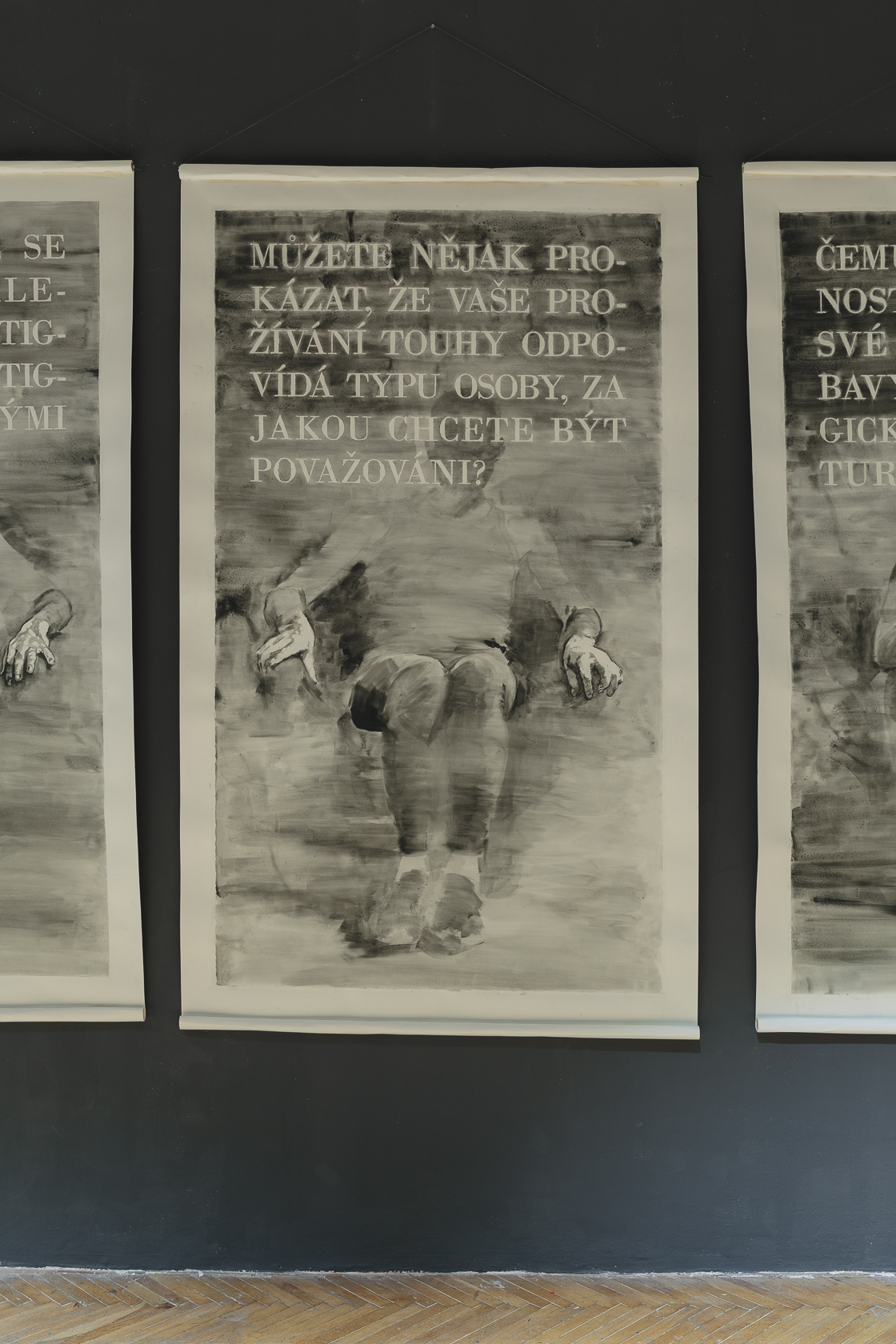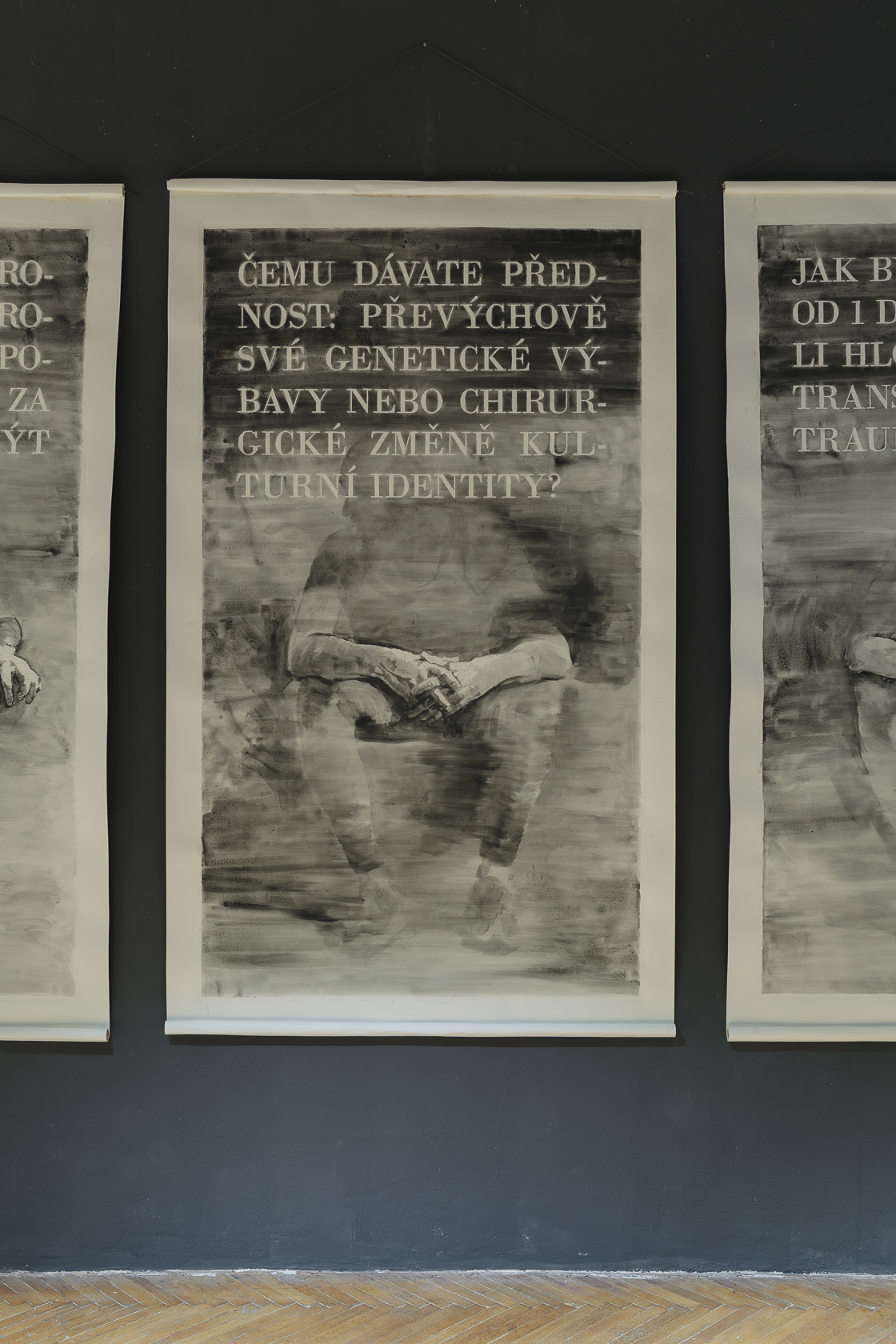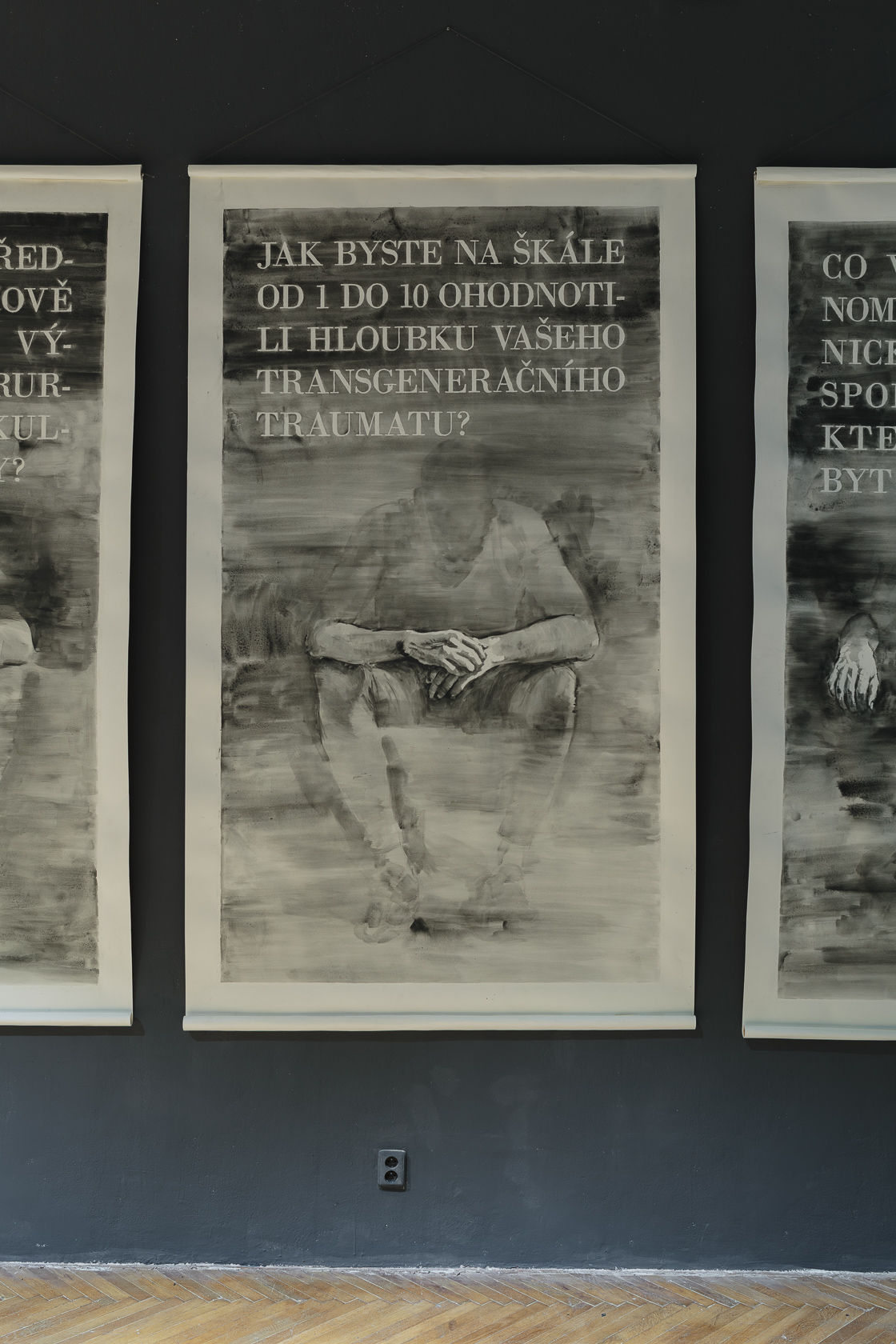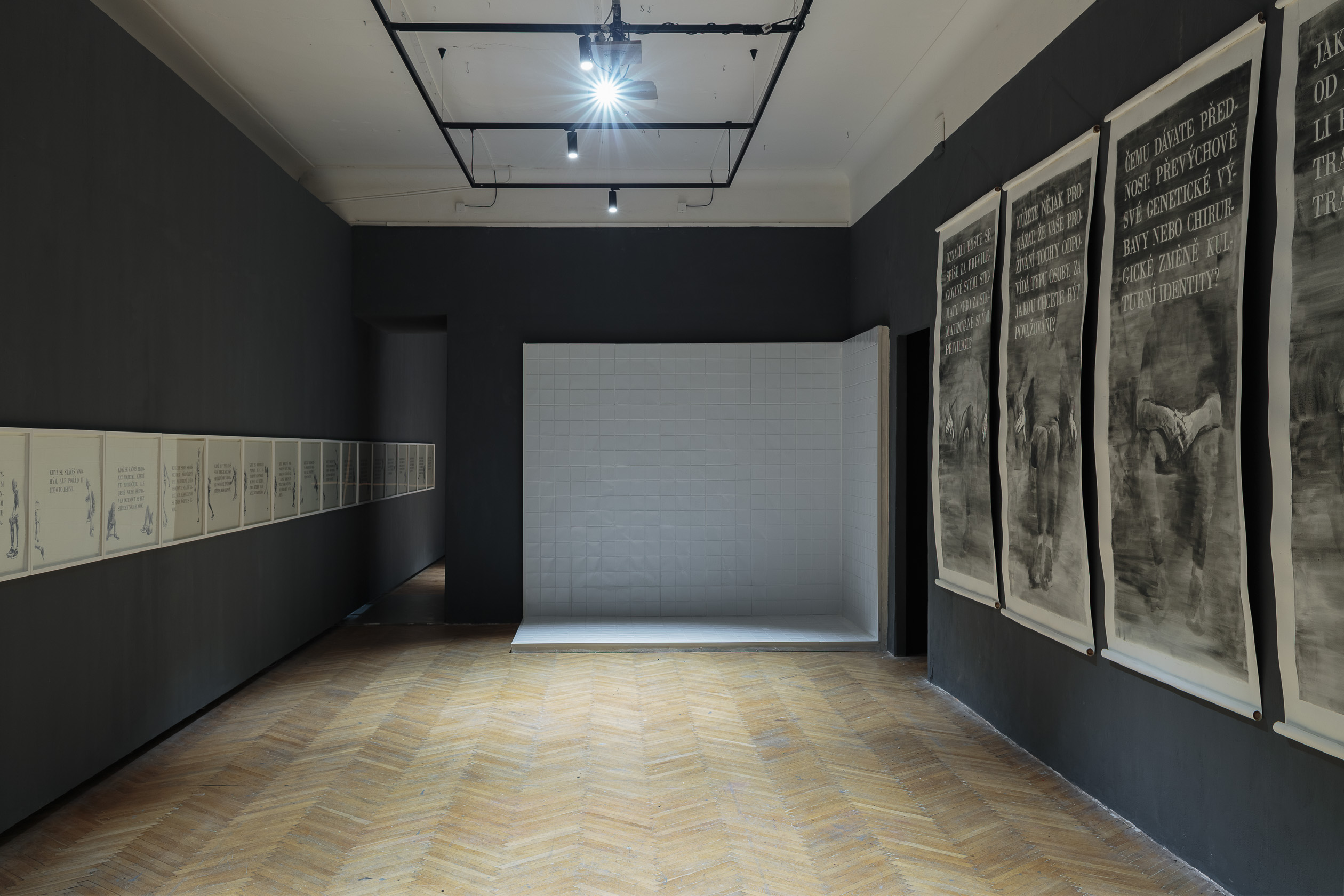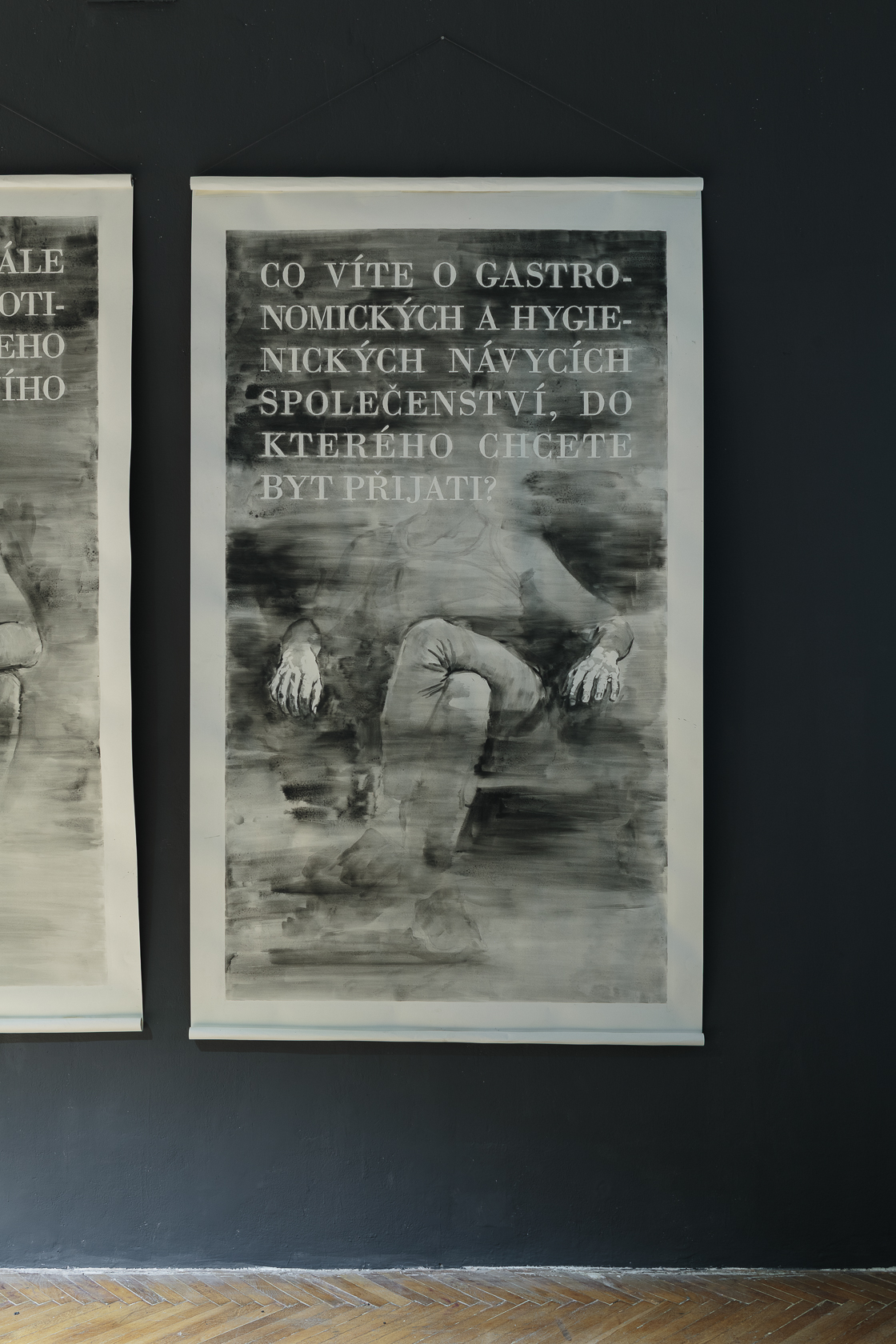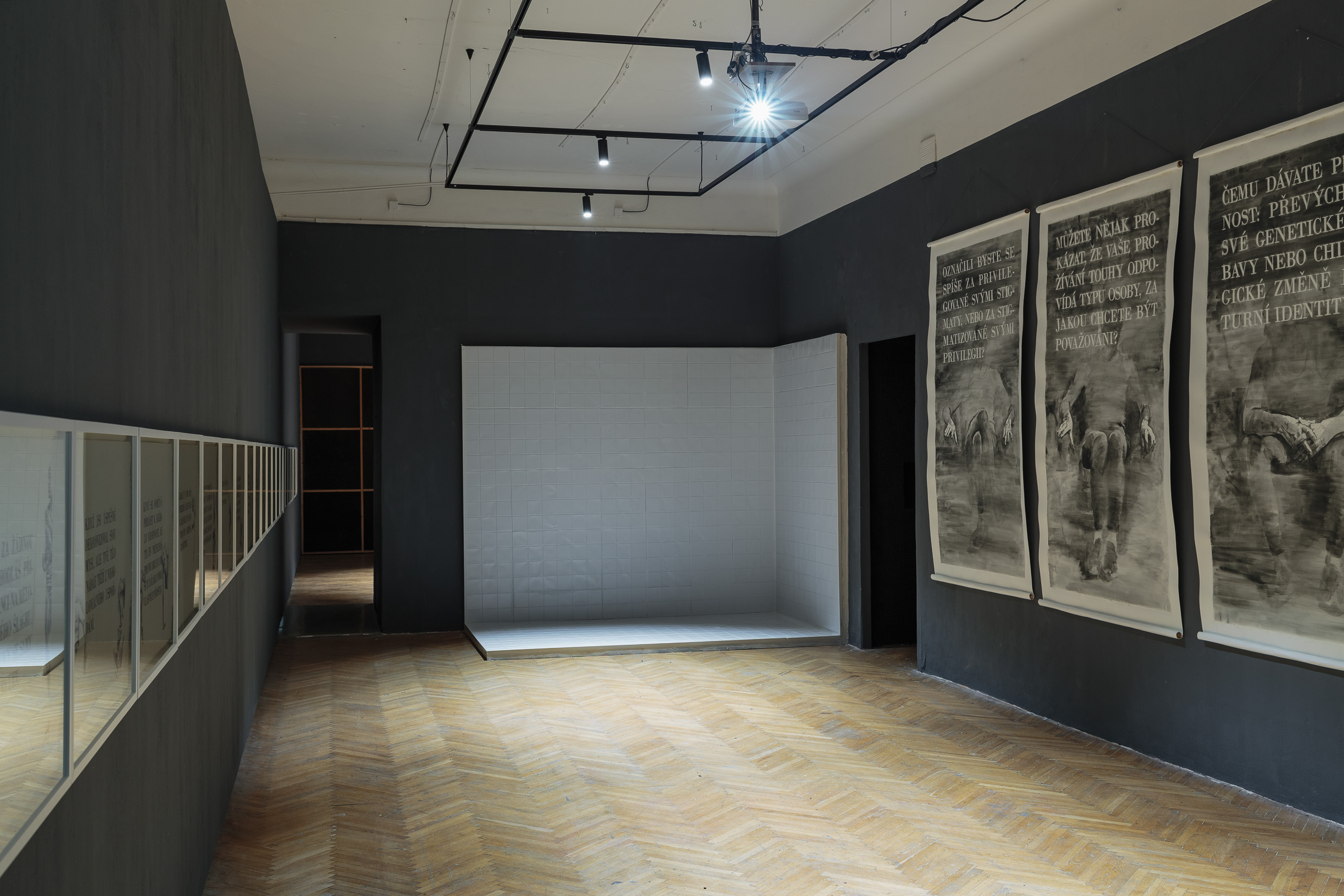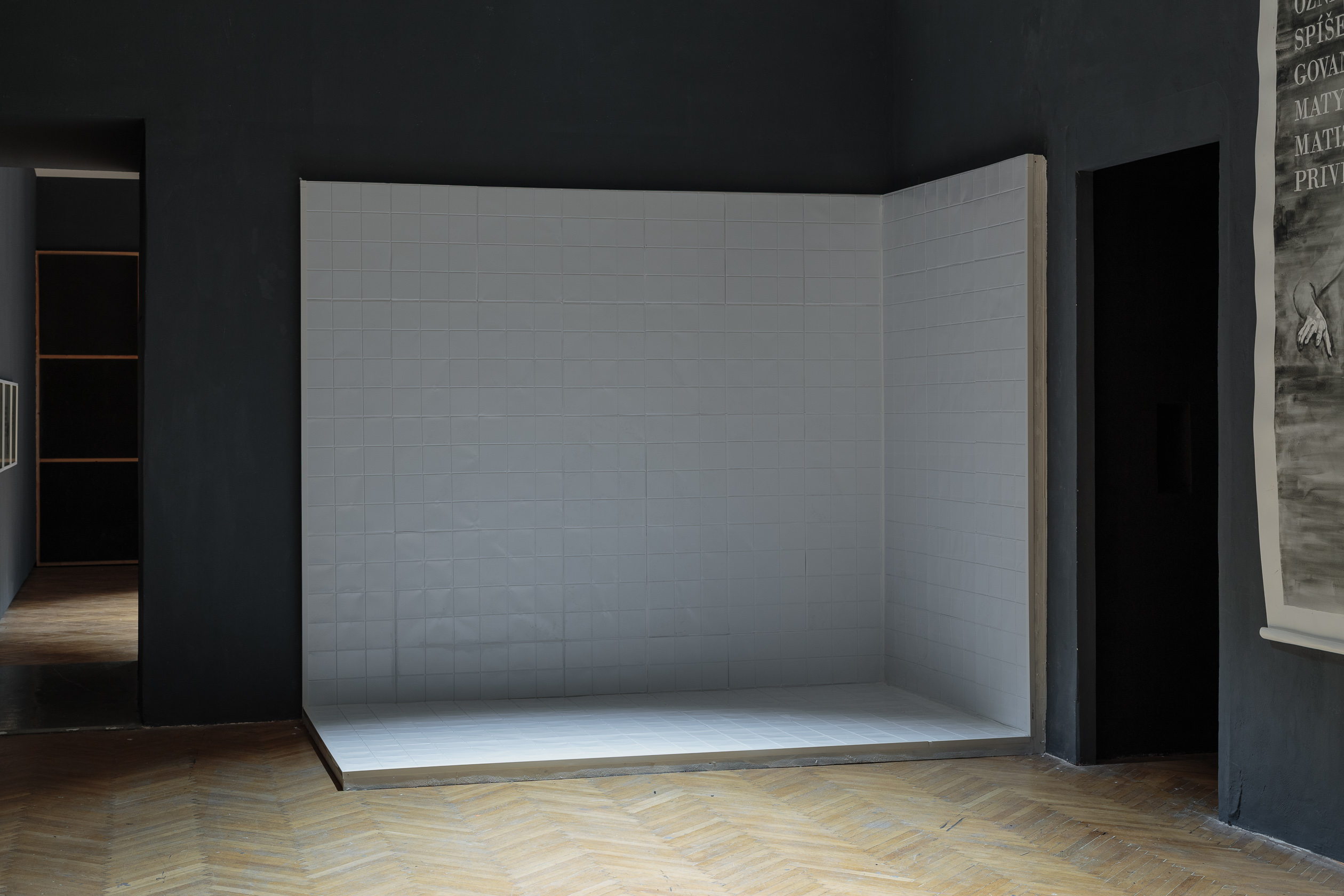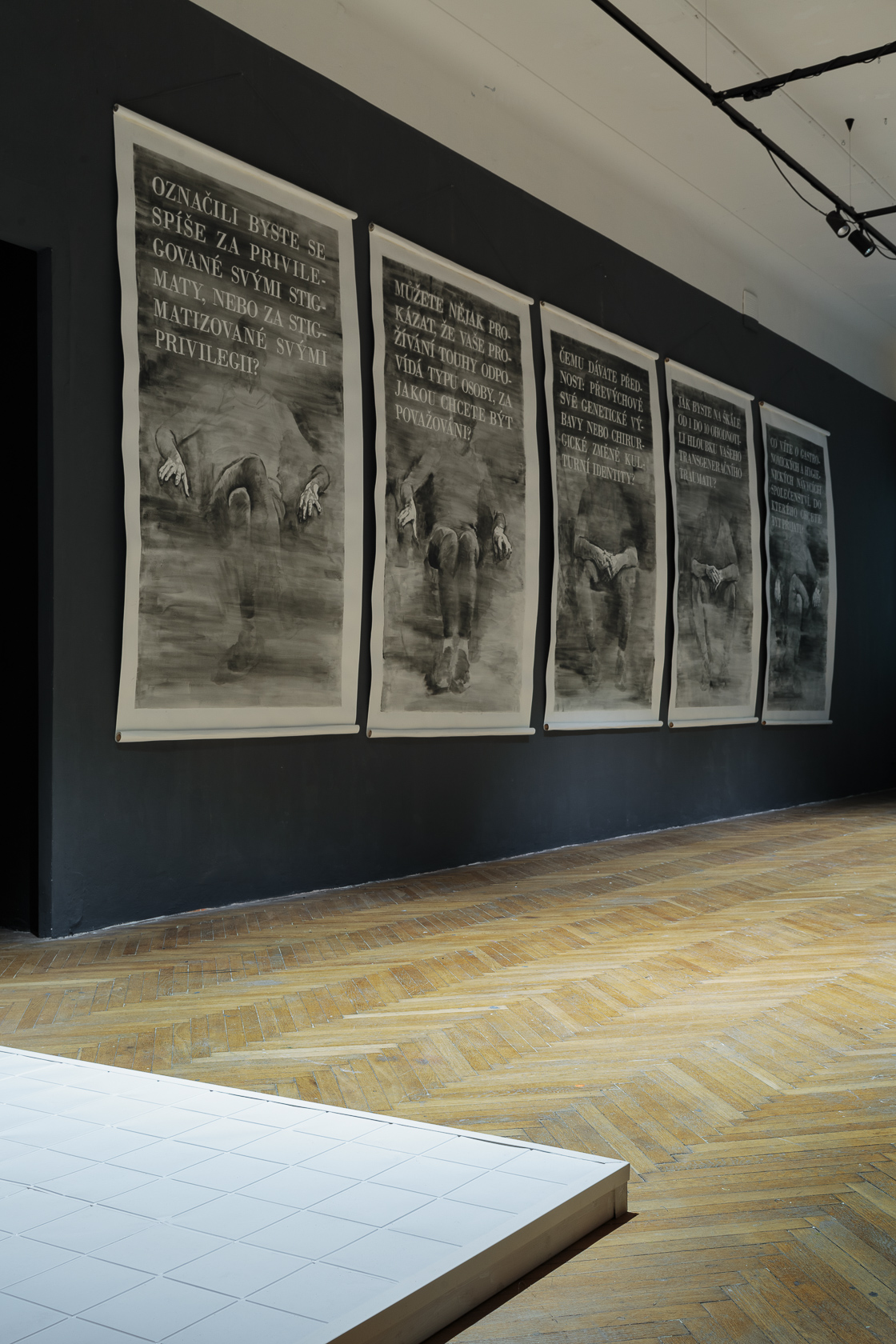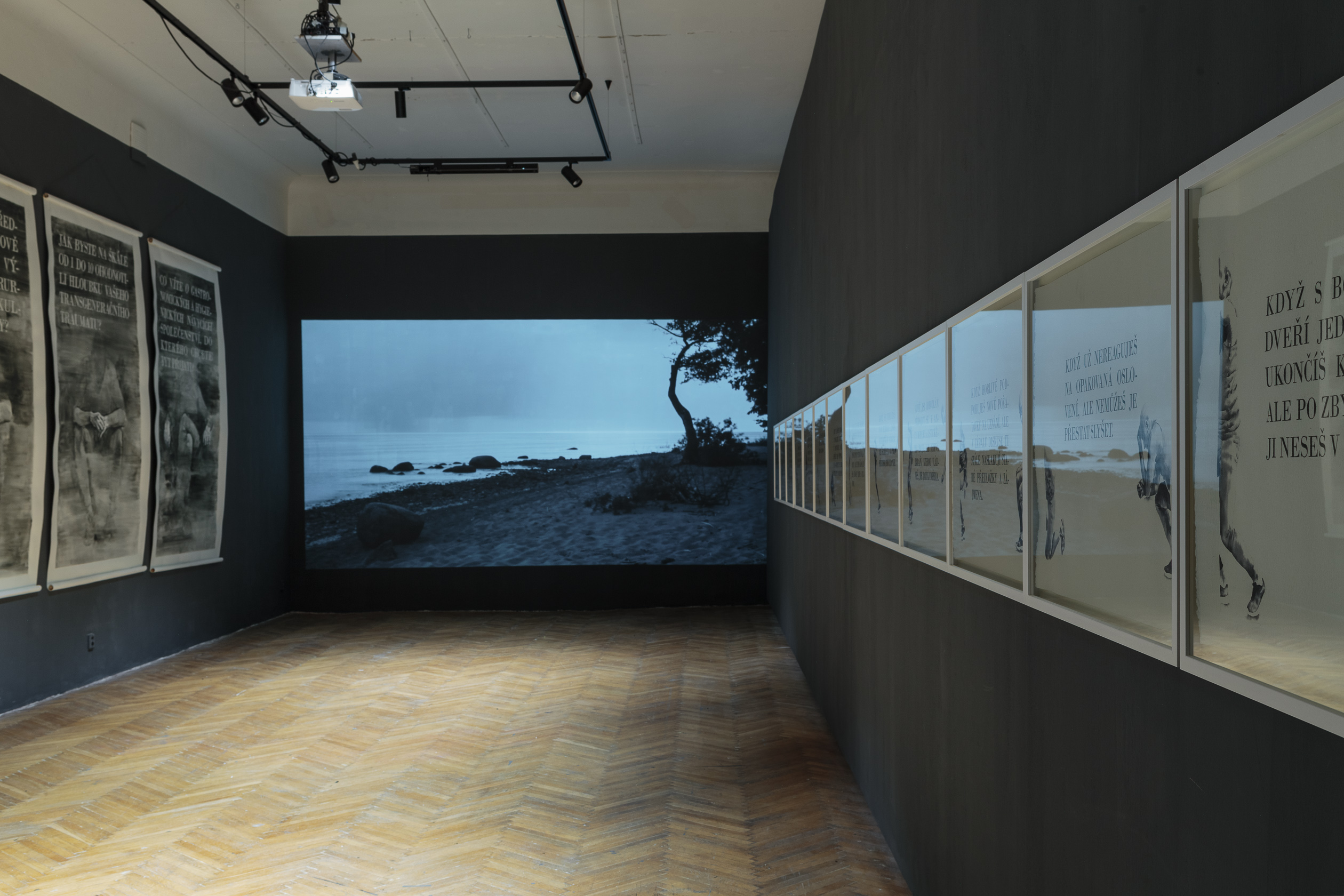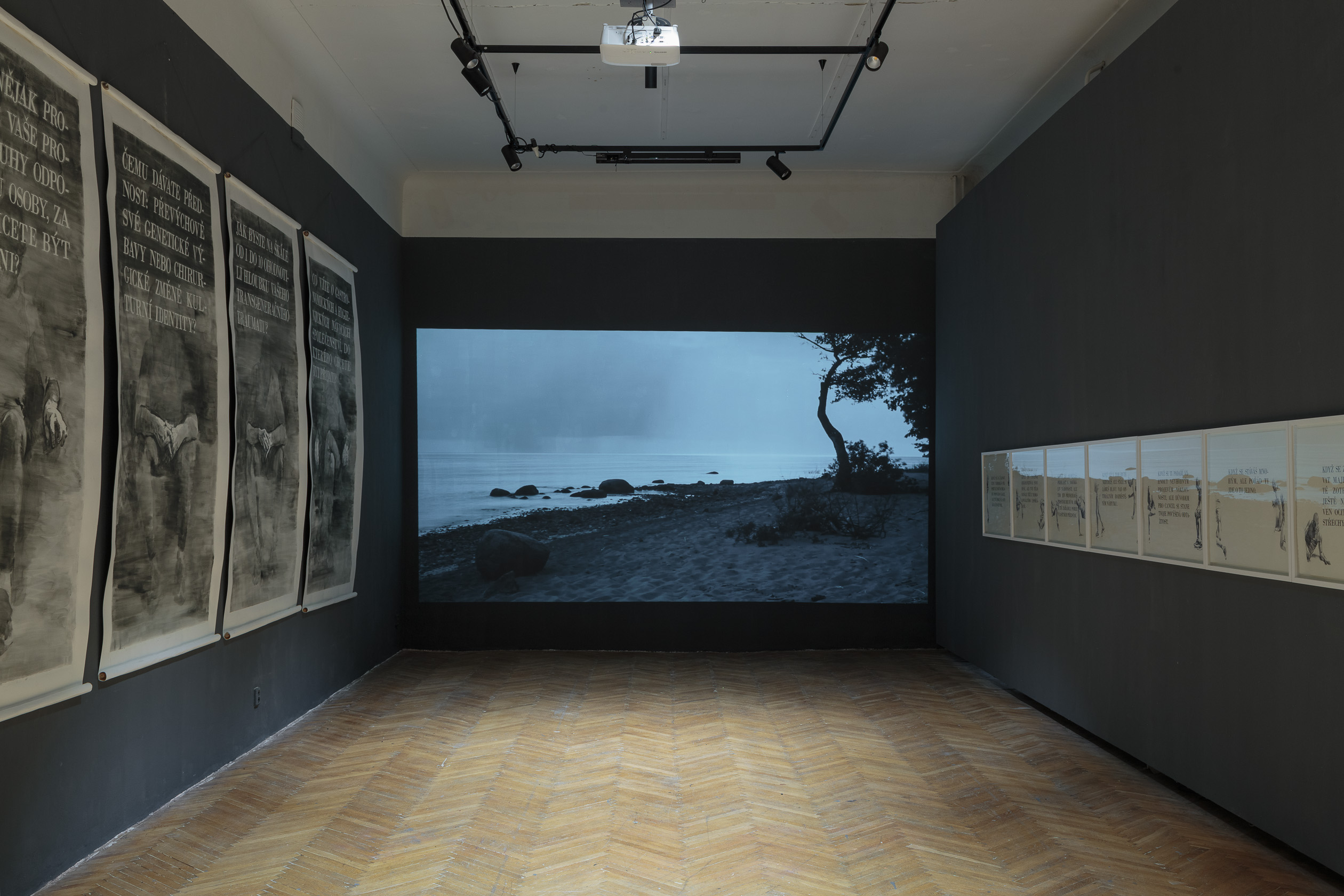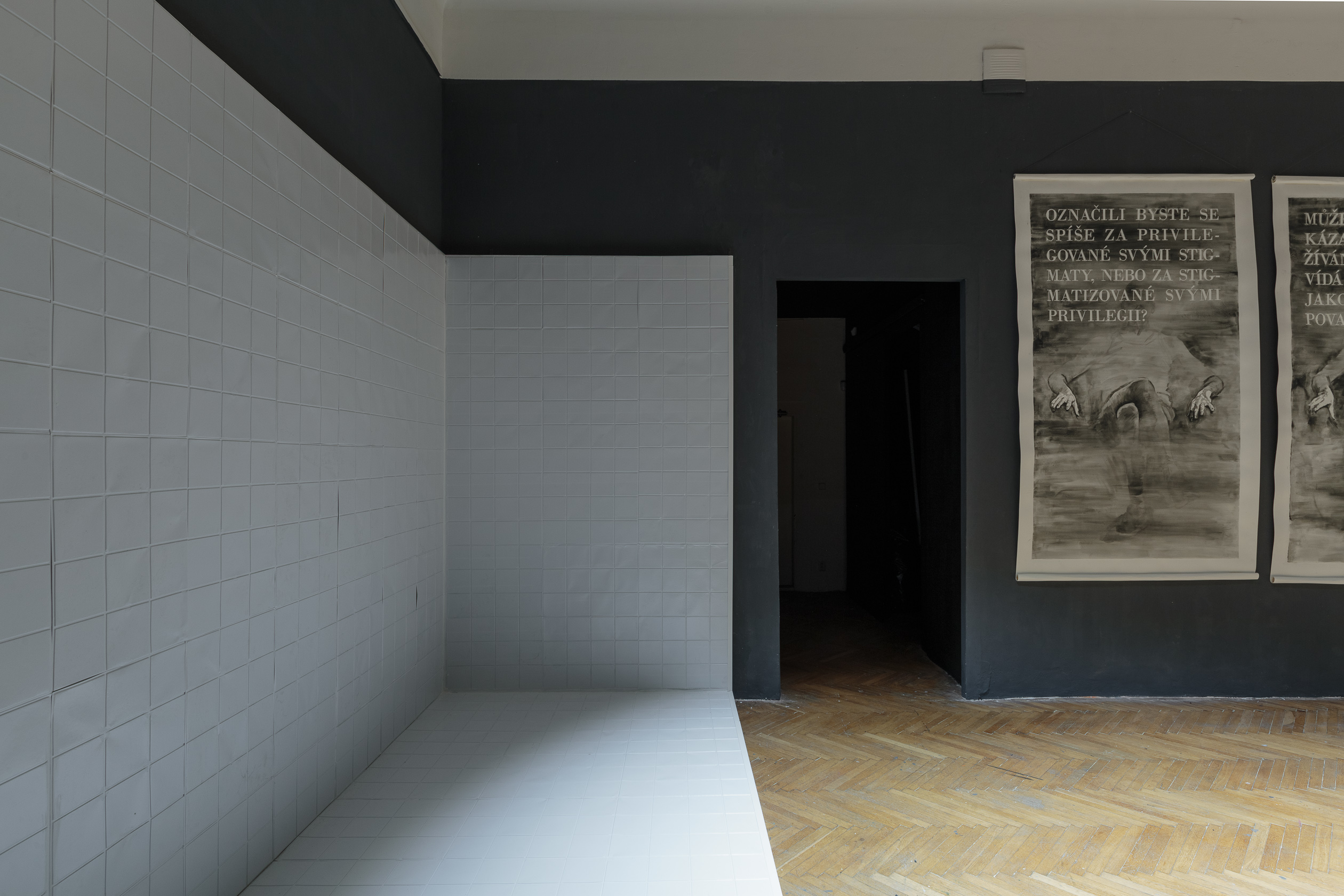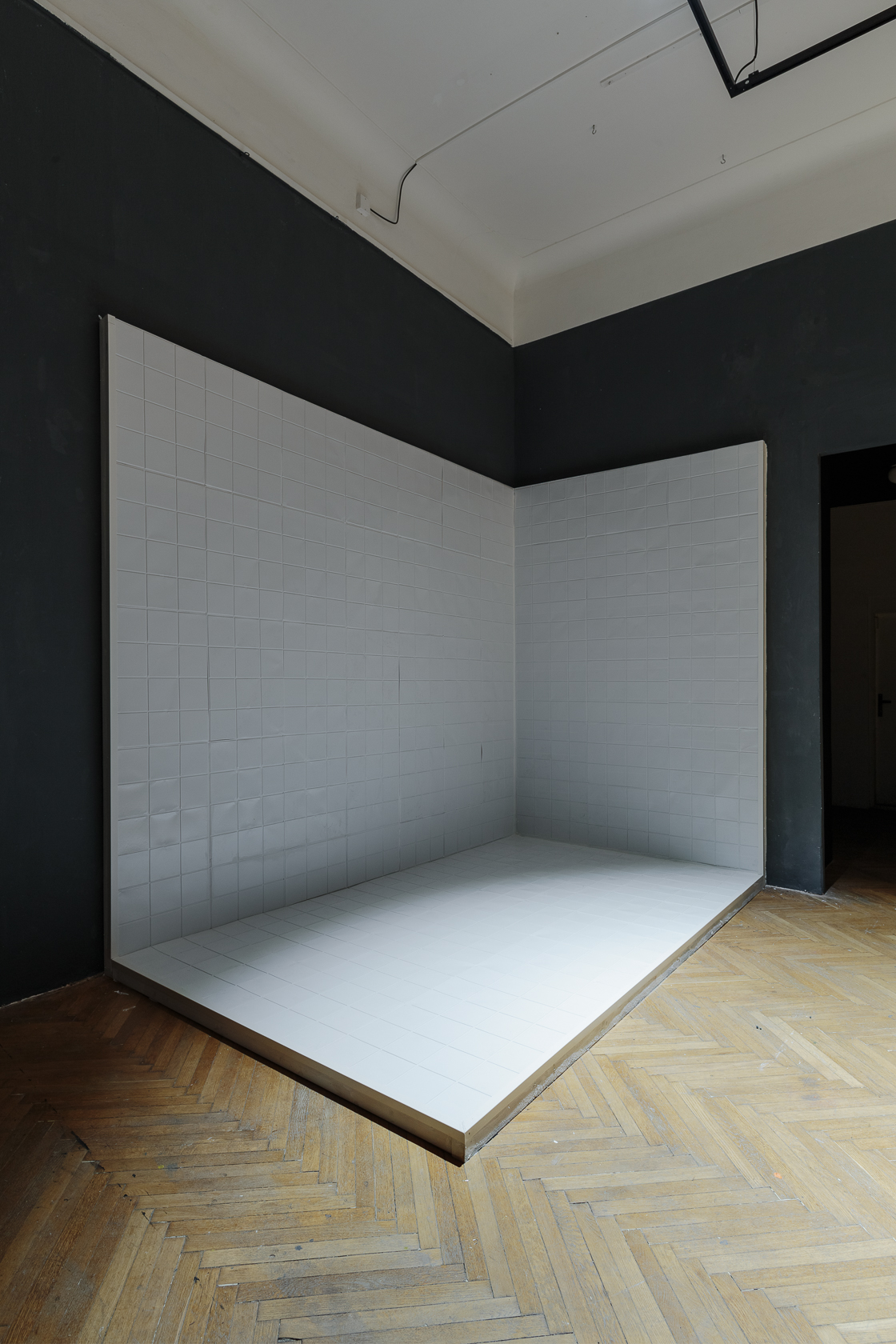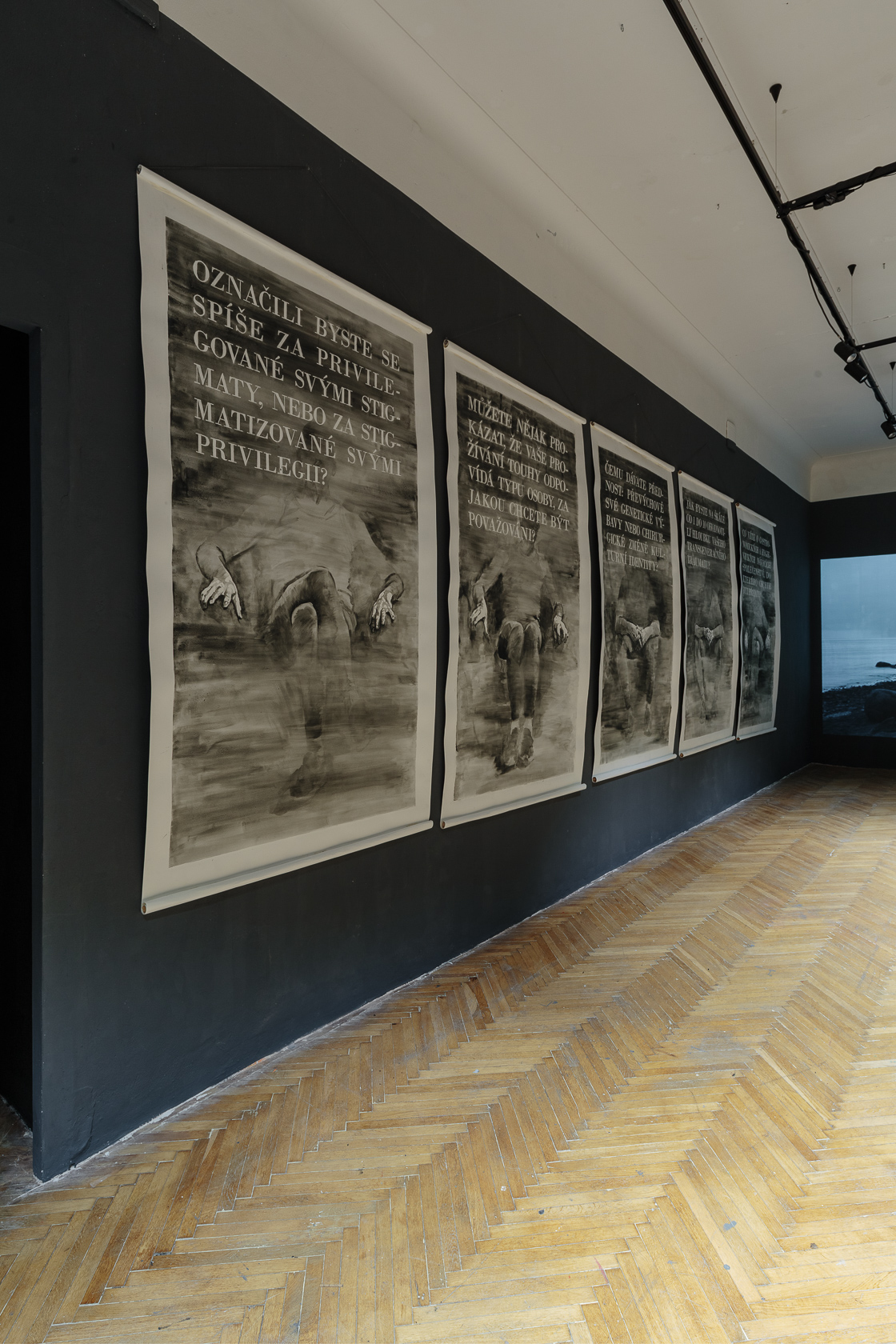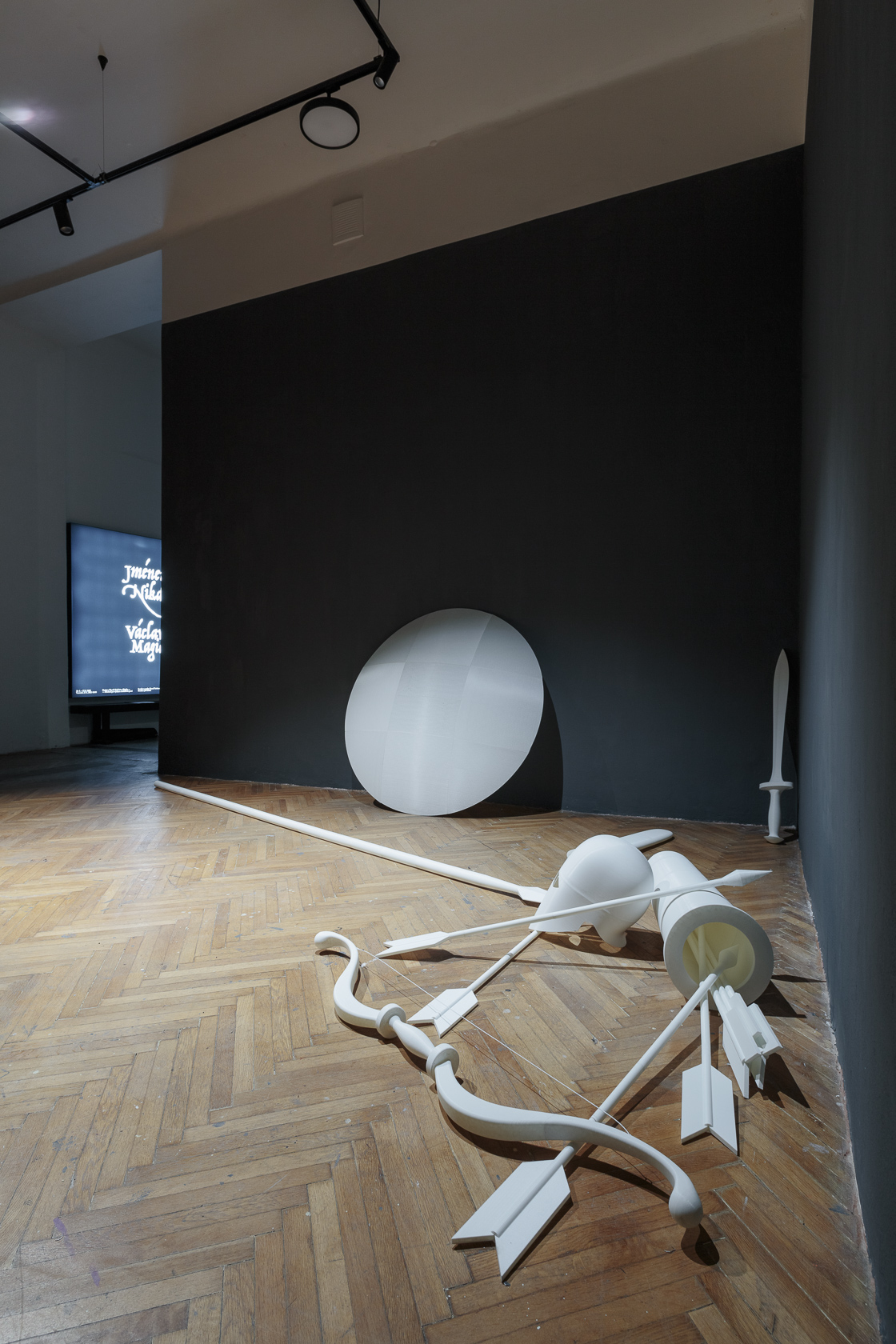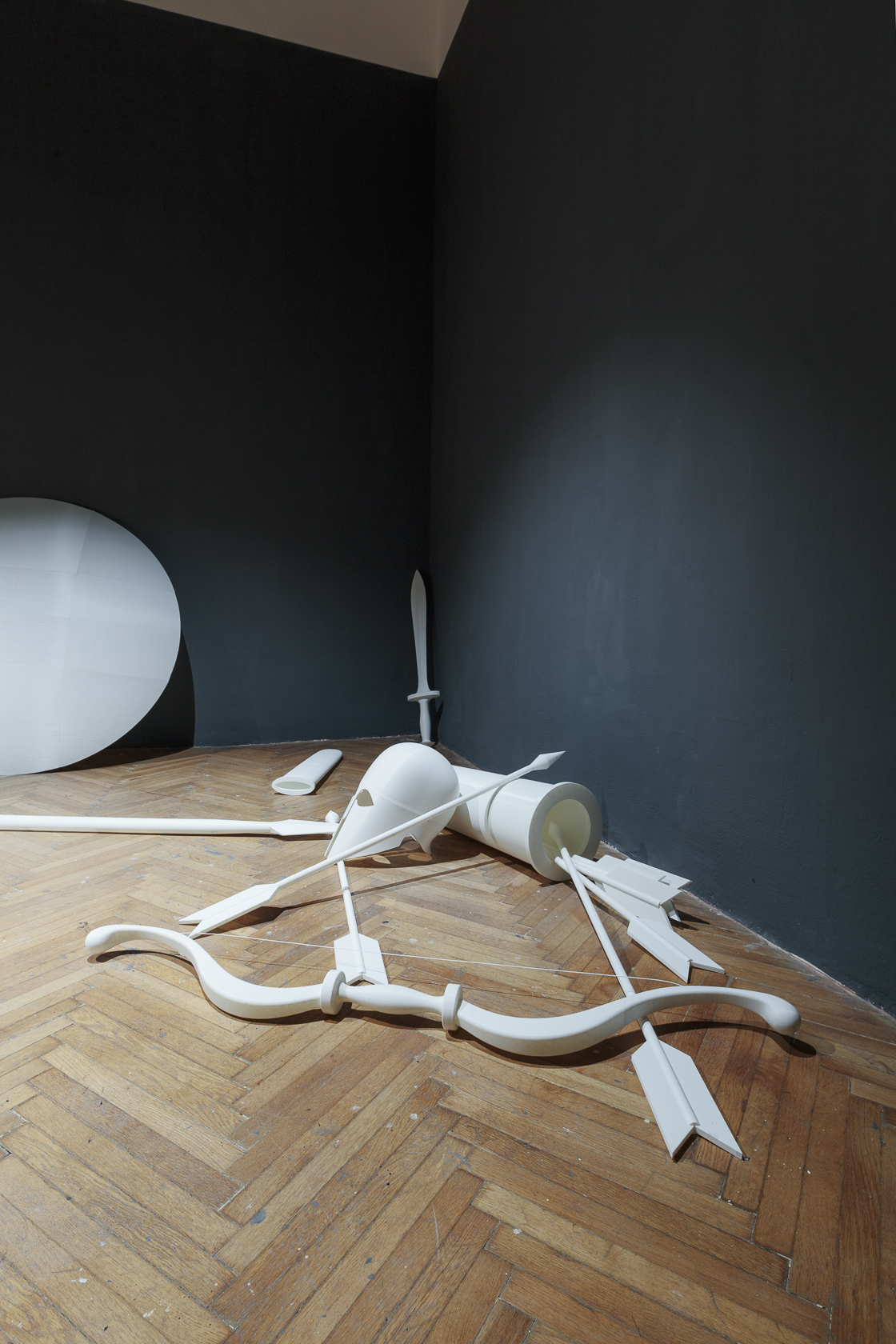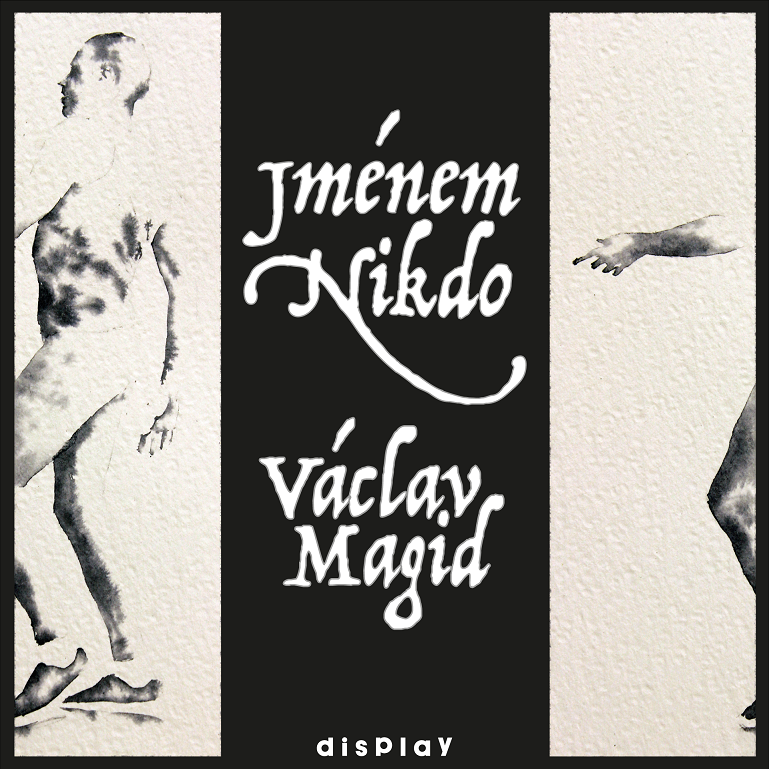Nobody By Name
To better grasp the exhibition’s theme, we can consider a story which recently appeared in the news. The richest Czech self-made man in one interview reminded humanity that we are all going to die. He then presented his vision for the future: “…but until then, we will strive to develop our assets in the most reasonable and responsible way.” This short statement testifies to his dedication to the accumulation of capital until death do them part. Let us leave the poor businessman to his fanatical faith in profit and rather focus on the much more interesting questions such a statement prompts. This shared, ominous fate cannot, in all likelihood, be avoided, but we are presently – and oftentimes on account of people like the aforementioned magnate – cast into a web of collective imaginings and situations which we did not choose ourselves, and which we find hard to identify with. If we disregard the utopian possibility that we might be able to change our conditions or, on the other hand, submit in total resignation, is it possible to avoid this common fate, or at least make an attempt? The rich man’s terrifying conformism expresses our world in a nutshell, but is it possible to desert this world? Such questions open a space full of contradictions. The deserter finds themself on the two horns of a dilemma: they no longer want to take part in the injustices perpetrated by the group to which they belong, but they also cannot shake their complicity with the injustices already done. For one camp, they are a traitor, while for the other their defection is not enough to redeem them. Václav Magid’s exhibition explores the possibilities of exit from collective fate and metaphorically develops this contradictory individual experience. The work is divided into two parts: in the first, Magid traces an image of the reality from which the deserter wishes to flee, while in the second, he explores the conditions they must fulfill in order to cross the threshold and begin a new life. Magid is an artist whose work is based on dialogue among diverse disciplines. He identifies and explores contradictions which do not fit into easy-to-define categories and transcend the simple dividing lines between good and evil.
Václav Magid (1979, Leningrad) is an artist, curator and writer living in Prague and Brno. After studying at the Academy of Fine Arts and the Academy of Arts, Architecture and Design in Prague, he graduated with a master’s degree in philosophy from the Faculty of Arts of Charles University, where he is currently pursuing a PhD in aesthetics. His work explores the relationship between ideology and the everyday (e.g. in solo exhibitions Coordinates, Brno: Atrium Moravian Gallery, 2012; Autonomy, Ostrava: PLATO, 2015; Home or Best, East Is West, together with Katarína Hládeková, Brno: TIC, 2023; the book A Small Encyclopedia of Improprieties, Prague: ArtMap, 2019). He has exhibited as part of group shows in the Czech Republic and abroad (Lyon Biennial, 2013), he was twice a finalist of the Jindřich Chalupecký Award (2010, 2013). He curated a number of group exhibitions (States of Things, Karlín Studios, 2006; Punctum, Futura, 2008), and his most recent curatorial and theoretical project consisted of a series of seven exhibitions and publications entitled Conditions of Impossibility (Galerie Kurzor, 2017–2018). Between 2006–2018, he worked at the research department of the Academy of Fine Arts in Prague, where he co-directed (together with Jakub Stejskal) the journal Notebook (Sešit pro umění, teorii a příbuzné zóny). He is currently a lecturer in art theory and history at the Faculty of Fine Arts of the Brno University of Technology and the Academy of Fine Arts in Prague.

